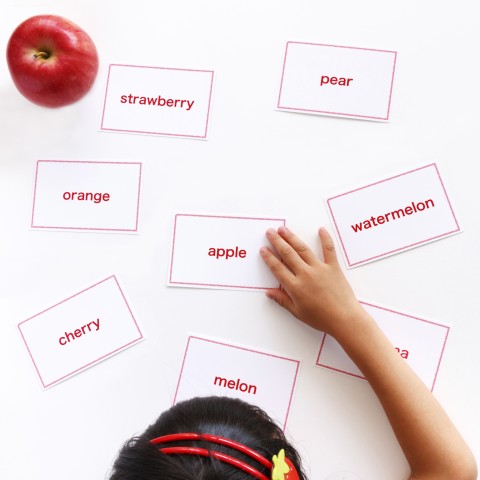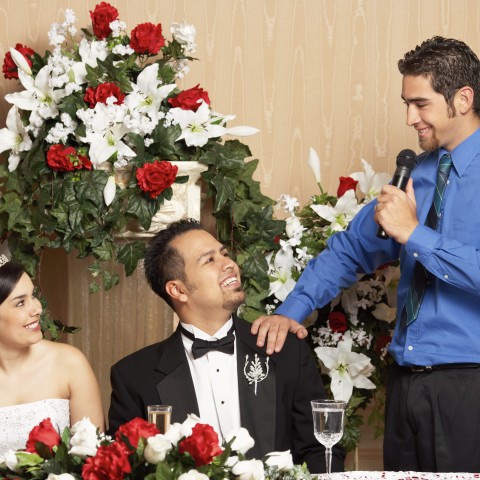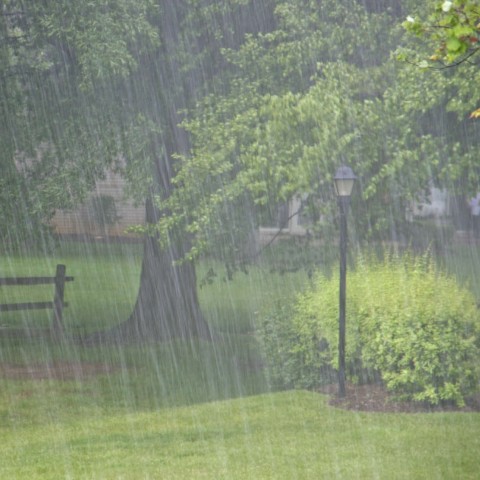
Germany is a big country with tons of diversity and an expansive territory.
You can take a swim in the North Sea at Germany’s island of Sylt, go skiing in the Bavarian Alps, or even check out Berlin’s East Side Gallery to see some murals from the post-WWII era.
All of this and more makes Germany an appealing country to visit as a tourist, especially thanks to the country’s abundance and variety of nature.
One of the most appealing elements of nature—and life in general—is animals. Picking up a few German animal names before your visit is sure to enhance your experience, especially if you plan to spend some time in the great outdoors.
Even if you never set foot in Germany, learning these basic words will take your German-language skills up a notch and maybe even help you see the world through a fresh set of eyes. After all, many animals are rather similar to us: they have emotions, they survive, and they have many of the same essential needs as we do.
To help you build your animal vocabulary and limit how often you resort to English, we’ve compiled this masterlist of words for animals in German.
Without further ado, let’s get right into it…
 Table of Contents
Table of Contents
- At Home (Pets)
- On the Farm (Farm Animals)
- In the Wild / Forest / Safari (Land Animals)
- In the Ocean (Aquatic / Marine Animals)
- Bugs and Insects
- Birds
- Reptiles & Amphibians
- Animal Body Parts
- Animal-Related Idioms and Slang Expressions
- Conclusion
1. At Home (Pets)

Cats are the #1 pet of choice in Germany. In fact, a mere 22 percent of households in Germany are home to more than 14 million cats in total. (Dogs are a close second!)
Not only is Germany pet-friendly, but the treatment they give to their pets is simply outstanding. Yet, if you’re a foreigner (especially from outside the European Union) planning to move to Germany with your pet, you’ll want to make sure you become familiar with the legal procedures.
All pets are tax-exempt in Germany, except for non-rescue dogs. For these, you’ll have to pay a Hundesteuer every year.
Here’s a list of nine at-home pet names in German:
| Katze | “Cat” |
| Hund | “Dog” |
| Hamster | “Hamster” |
| Kaninchen | “Rabbit” |
| Maus | “Mouse” |
| Ratte | “Rat” |
| Meerschweinchen | “Guinea pig” |
| Goldfisch | “Goldfish” |
| Papagei | “Parrot” |
2. On the Farm (Farm Animals)

Germany is one of the most developed countries in terms of agriculture, and 80% of the country’s total land is used for forestry and agricultural activities.
Germany is known for its fast adoption of technology in agriculture, as it’s replacing more and more farm workers with machinery over time.
With the great significance agriculture carries in Germany, you never know when the need may arise for some animal vocabulary. Below, you’ll find the names of a few farm animals in German to get you started.
| Kuh | “Cow” |
| Schwein | “Pig” |
| Schaf | “Sheep” |
| Ziege | “Goat” |
| Pferd | “Horse” |
| Huhn | “Chicken” |
| Henne | “Hen” |
| Hahn | “Rooster” |
| Gans | “Goose” |
| Ente | “Duck” |
| Truthahn | “Turkey” |
3. In the Wild / Forest / Safari (Land Animals)

Germany hosts several beautiful national parks, most notably the Bavarian Forest National Park and the Eifel National Park. Considering that 2% of Germany’s territory is covered by wilderness, there are more than enough options to satisfy adventurers and nature lovers.
Your adventures are bound to be more interesting when you could stumble upon wolves, foxes, boars, and a number of other wild animals on your trek!
- → Intrigued by wildlife? Then head over to our video lesson on forest animal vocabulary to learn more useful words for wild animals in German!
| Bär | “Bear” |
| Wolf | “Wolf” |
| Hirsch | “Deer” |
| Hase | “Hare” |
| Fuchs | “Fox” |
| Igel | “Hedgehog” |
| Eichhörnchen | “Squirrel” |
| Eber | “Boar” |
| Murmeltier | “Groundhog” |
| Löwe | “Lion” |
| Tiger | “Tiger” |
| Jaguar | “Jaguar” |
| Panther | “Panther” |
| Elefant | “Elephant” |
| Giraffe | “Giraffe” |
| Affe | “Monkey” |
| Gorilla | “Gorilla” |
| Känguru | “Kangaroo” |
| Koala | “Koala” |
| Panda | “Panda” |
| Faultier | “Sloth” |
| Robbe | “Seal” |
| Pinguin | “Penguin” |
| Eisbär | “Polar bear” |
| Walross | “Walrus” |
4. In the Ocean (Aquatic / Marine Animals)

Germany is mostly landlocked, but it does border two large bodies of water up north:
- the North Sea (Nordsee) to the West
- This is Europe’s most significant shipping lane and a major fishing source for Western Europe.
- the Baltic Sea to the East
There are also a variety of lakes (such as Lake Constance [Bodensee] and Chiemsee) that are home to beautiful marine animals and fish.
Here’s a list of 12 aquatic animals in German and English to get you started:
| Fisch | “Fish” |
| Hai | “Shark” |
| Delfin | “Dolphin” |
| Wal | “Whale” |
| Seelöwe | “Sealion” |
| Qualle | “Jellyfish” |
| Tintenfisch | “Octopus” |
| Seepferdchen | “Seahorse” |
| Seeigel | “Urchin” |
| Seestern | “Starfish” |
| Muschel | “Mussel” |
| Seegurke | “Sea cucumber” |
5. Bugs and Insects

Over the last 30 years, more than 75% of total flying insect mass has disappeared from German skies. These numbers are not unheard of in other countries, and they should sound an alarm to us humans that we ought to become more environmentally aware.
While it does not help the environment, less bugs and insects in the sky does mean less trouble to deal with. This would guarantee better sleep than what you would get in, say, Indonesia or another tropical country—especially if you like to camp or keep the windows open at night.
With that being said, there are several situations where knowing some German vocabulary to describe bugs and insects could come in handy. That’s why we’ve compiled this list of 12 bugs and insects in German along with their English translations:
| Biene | “Bee” |
| Wespe | “Wasp” |
| Moskito | “Mosquito” |
| Fliege | “Fly” |
| Spinne | “Spider” |
| Heuschrecke | “Grasshopper” |
| Kakerlake | “Cockroach” |
| Schmetterling | “Butterfly” |
| Ameise | “Ant” |
| Motte | “Moth” |
| Schnecke | “Snail” |
| Nacktschnecke | “Slug” |
You can also hear and practice the pronunciation of different bugs and insects on our website!
6. Birds
Birds are arguably some of the most beautiful animals. They come in a rich variety of body types and colors, and there are endless species to enjoy.
Like with pets, Germany is a very nice country for birds. It is home to several bird protection organizations, and there is continuous collaboration with the European Union for the same purposes.
| Möwe | “Seagull” |
| Krähe | “Crow” |
| Adler | “Eagle” |
| Taube | “Dove” |
| Eule | “Owl” |
| Elster | “Magpie” |
| Spatz | “Sparrow” |
| Pfau | “Peacock” |
7. Reptiles & Amphibians
Reptiles are always an interesting topic to talk about, especially when we’re talking about the more dangerous species (think black mambas!).
Germany may not be well-known for its reptiles and amphibians, as Australia and Southeast Asian countries would definitely beat it in this department. But in reality, the country is large and diverse enough to host a good variety of species. For example, you can spot wall lizards in Stuttgart, European pond turtles in Geisenheim, and sand lizards in Dotzheim.
Below is a short list of reptiles and amphibians in German for you to review:
| Frosch | “Frog” |
| Kröte | “Toad” |
| Krokodil | “Crocodile” |
| Eidechse | “Lizard” |
| Schildkröte | “Turtle” |
| Meeresschildkröte | “Sea turtle” |
| Schlange | “Snake” |
8. Animal Body Parts
Detail is important, and a good animal description should never lack it.
We’ve compiled a list of animal body parts to help you describe your favorite animals:
| Schwanz | “Tail” |
| Haar | “Hair” |
| Pelz | “Fur” |
| Zahn | “Tooth” |
| Fangzahn | “Fang” |
| Klaue | “Claw” |
| Horn | “Horn” |
| Huf | “Hoof” |
| Feder | “Feather” |
| Flügel | “Wing” |
| Schnabel | “Beak” |
| Mund | “Mouth” |
| Flosse | “Fin” |
| Tentakel | “Tentacle” |
| Mähne | “Mane” |
| Kofferraum | “Trunk” |
| Stoßzahn | “Tusk” |
| Fühler | “Antenna” |
| Bein | “Leg” |
| Schuppe | “Scale” |
| Kieme | “Gill” |
9. Animal-Related Idioms and Slang Expressions
Now that you’ve acquired a good bit of German animal vocabulary, you may enjoy finding creative ways to put these words to use. Here are several idioms and slang expressions in German that mention animals:
| Da wird ja der Hund in der Pfanne verrückt. “The dog in the pan is going crazy.” | That’s enough to drive you round the bend! |
| Jemanden einen Bären aufbinden. “To untie someone a bear.” | To lead someone up the garden path. |
| Ein blindes Huhn findet auch ein Korn. “A blind chicken happens to find corn too.” | A blind hen happened to find a grain. |
| Die Katze im Sack kaufen. “To buy a cat in a bag.” | To buy a pig in a poke. |
| Mit dir habe ich noch ein Hühnchen zu rupfen. “I still have a chicken to pick with you.” | I still have an axe to grind with you. |
| Du benimmst dich wie ein Elefant im Porzellanladen. “You act like an elephant in a porcelain shop.” | Like a bull in a china shop. |
| Das geht auf keine Kuhhaut. “It doesn’t fit on a cow’s skin.” | It beggars description. |
| Mein Name ist Hase, ich weiß von nichts. “My name is Hare, I know nothing.” | I have no clue. / I have nothing to do with that. |
| Da steppt der Bär. “There the bear steps.” | The mood is great there. |
| Du hast doch ‘nen Vogel. “You have a bird.” | You are insane. |
| Alles für die Katz. “Everything for the cat.” | It was all a waste of time. |
Want to spice up your German a little more? Then head over to our vocabulary list Essential Idioms That Will Make You Sound Like a Native Speaker and our lesson Some of the Most Common Slang Expressions in Germany.
10. Conclusion
There you have it. You have now learned tons of information about wildlife in Germany, and you’re ready to hold a conversation about its most ferocious and beautiful animals. To practice, let us know the name of your favorite animal in German!
Feel like you want even more practice? Are you struggling to create your own sentences and hold comfortable conversations in German?
An efficient learning resource might be what you’re looking for.
That’s where GermanPod101 comes in.
With thousands of audio, video, and text lessons, GermanPod101 is a comprehensive resource that learners of all levels (beginner, intermediate, or advanced) can rely on.
What makes GermanPod101 effective is the integrations that make our program work. Lessons come with cheat sheets and transcripts, and you can use tools for line-by-line breakdowns, pronunciation comparison, online flashcards, and even more. With our MyTeacher service, you can also study 1-on-1 with a native-speaking German language expert.
Don’t just take my word for it. Go to GermanPod101.com and try it all for yourself.
Signup is free and straightforward, and no credit card is required.
Viel Spaß beim Lernen!
Happy learning!

Master Simple German Questions and Answers for Beginners

Good evening, ladies and gentlemen. Welcome to tonight’s round of German Questions Extraordinaire!
Does that sound like a quiz show you would watch? It would certainly help out your German!
Perhaps you’ve realized that every time you have a German conversation, you’re kind of on a quiz show yourself. Conversations tend to be built around questions and answers—especially the kinds of conversations that you’re likely to have as a foreign student of German.
Therefore, practicing the following German questions and answers for beginners will provide you with the tools you need to sail through opening conversations like they’re nothing.
In a typical German conversation, questions and answers like the ones we’ll introduce today will come up all the time. Try them out now and see how you like them!
- → Before continuing, we recommend that you check out our vocabulary lists on the Top 10 Lines You Need for Introducing Yourself and the Top 15 Questions You Should Know for Conversations.
 Table of Contents
Table of Contents
- Contestant Number One
- You and Your Home
- Whose Language is it Anyway?
- Language Follow-Ups
- Travel Time
- Compare a Few Places
- All Eyes on Food
- What Do You Do?
- What’s Going On?
- The Price is Right
- Conclusion
1. Contestant Number One

- Wie heißen Sie?
“What’s your name?”
We begin the show today with the verb heißen, meaning “to be called.” As you can see, the pronoun here is the formal Sie, as opposed to the informal du. In general, younger people and people commenting online use du with one another (there’s even a verb for that: duzen), while one would use Sie with older people and in very formal situations.
To answer the question, simply use the same verb:
- Ich heiße Martin.
“My name is Martin.”
There’s actually another way to form this sentence that’s perhaps a little less common, but still familiar amongst native German-speakers. This one is a near-carbon copy of the English question:
- Wie ist ihr Name?
“What is your name?”
- Mein Name ist Gloria.
“My name is Gloria.”
The only difference compared to the English version is that German uses wie, meaning “how,” here instead of was, or “what.”
2. You and Your Home

Log on to any online language chat room and introduce yourself as a German-learner; people will absolutely ask you where you’re from. It’ll happen in Germany, too!
- Woher kommen Sie?
“Where do you come from?”
The first word here, woher, is an interesting quirk of German grammar. It means “from where” because wo is the “where” part and her is a particle meaning “to here.” So literally, you’re saying “From where to here do you come?”
To answer, we’ll need a preposition:
- Ich komme aus Ungarn.
“I come from Hungary.”
Aus simply means “out,” so literally, you’re expressing coming “out of a place.” There’s no need to use the her particle because it’s already been established by the context and the preposition.
3. Whose Language is it Anyway?
Let’s bring ourselves back to the basics for a moment. Here’s a German question you probably heard in movies long before you actually started studying the language.
- Sprechen Sie Deutsch?
“Do you speak German?”
Germans traveling abroad sometimes seem to have a sixth sense about who can speak German. You may end up getting this question even if you’re not in Germany!
There are a couple of good answers, depending on your comfort level.
- Ja, ein bisschen.
“Yes, a little.”
- Ja, wie kann ich Ihnen helfen?
“Yeah, what can I do for you?”
- Natürlich!
“Of course!”
If you find yourself lost for words in German-speaking lands, it’s a good idea to learn the names of other languages you can handle, just in case.
- Sprechen Sie Japanisch?
“Do you speak Japanese?”
- Können Sie Englisch?
“Can you speak English?”
There’s another German quirk right there: it’s acceptable to say “I can English” without specifying the verb “to speak.” Don’t try that with other skills, though. That sentence structure is reserved only for languages!
4. Language Follow-Ups

Once you’ve established that you’re not from Germany and are, in fact, capable of speaking the German language, people tend to get curious. After all, they’ve probably met at least one foreigner with pretty flawed German, and you, on the other hand, are doing quite well.
- Wie lange lernen Sie schon Deutsch?
“How long have you been learning German?”
German doesn’t have a tense that corresponds to “have been doing” in English. Instead, Germans simply use the present tense. The answer works the same way:
- Ich lerne Deutsch seit vier Jahren.
“I’ve been learning German for four years.”
The use of seit, meaning “since,” instead of für, meaning “for,” causes confusion in both German and English. Look carefully for people making this mistake in English-language internet comments, and you’ll probably find a couple of Germans!
The use of schon, or “already,” is optional here, but it can be readily adopted into the answer as well:
- Schon elf Jahre.
“Eleven years already.”
5. Travel Time

Let’s assume that you’re learning German at home in a country far away from Germany, Austria, or Switzerland. If you happen to come across a native speaker and strike up a conversation, you may get tossed this question:
- Waren Sie schon mal in Deutschland?
“Have you ever been to Germany?”
Here, we’re substituting waren, or “were,” as the past tense instead of the English “have you ever been.” It’s possible to say that in German, of course:
- Sind Sie schon mal in Deutschland gewesen?
“Have you ever been to Germany?”
However, this is rather stilted and definitely a mark of older speech or writing.
Also note the use of mal. This literally means “time” or “occurrence,” as in “one time, two times…” Here, it doesn’t really have a word-for-word translation; instead, it simply lends the flavor of “ever been.” You can think of schon mal as a set phrase in that regard.
- Ich war 2015 in Berlin.
“I went to Berlin in 2015.”
- Ja, dreimal insgesamt.
“Yeah, three times in total.”
Here, mal has its traditional meaning as part of dreimal, or “three times.”
6. Compare a Few Places
Germans are educated folks, and they tend to be quite open to traveling and new perspectives. Just go on YouTube and look for kultur shock (culture shock) to find a bunch of different vloggers talking about their experiences abroad.
It’s not uncommon for a German conversation to include a genuinely interested question about what things are like in your country.
- Und wie ist es in Amerika?
“And what is it like in America?”
- Gibt es so etwas in Mexiko?
“Do they have this in Mexico?”
You can, of course, give as simple or as complicated of an answer as you want. In fact, some of the most high-level German exams ask you specifically to compare things in your home country to those in Germany.
So you have virtually unlimited options for description here. Let’s keep it basic with these sample answers:
- Nein, so was haben wir gar nicht!
“No, we don’t have that kind of thing at all!”
- Ja, aber es ist bei uns anders.
“Yes, but it’s different with us.”
Again, we can see some differences in the way that English and German use prepositions. It’s bei uns, meaning “by us,” instead of mit uns, or “with us.”
7. All Eyes on Food

Germans probably wouldn’t say that they’re particularly proud of German food, but it’s a common-enough conversation topic that it’s good to practice. Here are some good questions in German you can try out.
- Was mögen Sie an deutsches Essen?
“What do you like about German food?”
- Mögen Sie deutsches Essen?
“Do you like German food?”
This is a situation where telling a bit of a white lie doesn’t hurt (assuming you’re not a fan of the food, of course).
- Ja, alles schmeckt sehr gut!
“Yes, everything tastes very good!”
- Ich esse gern Weißwurst.
“I like eating white sausage.”
Here we’ve got the great particle gern, which can’t really be translated on its own, but instead is used after a verb to express enjoyment of that action.
8. What Do You Do?

Everybody’s got to do something to bring home the bacon. How about you?
- Was machen Sie beruflich?
“What do you do for your job?”
If you haven’t already brushed up on the names for jobs and careers in German, definitely check out our vocab list.
People aren’t going to need a complicated description of what you do, especially if you’re in a niche field like insurance or SEO marketing.
Instead, stick to a general field:
- Ich schreibe Werbungen.
“I write advertisements.”
- Ich bin Krankenschwester.
“I’m a nurse.”
Remember, when you talk about job titles in German, you don’t need to use an article the way you would in English.
9. What’s Going On?
To be frank, an introduction question like this is much more of a set phrase than an actual inquiry into your well-being.
- Wie geht es Ihnen?
“How’s it going?”
The easy answer is Gut or Sehr gut, but your answer could also be the opening to any one of several classic conversation topics.
- Nicht so gut bei diesem Wetter!
“Not so well in this weather!”
10. The Price is Right

Germany isn’t really a country known for street markets or haggling, but a phrase for asking the cost of something is one worth knowing.
- Wie viel kostet es?
“How much does it cost?”
Even if you’re not haggling, you can still get use out of this phrase in cafes and restaurants that might not have all of the prices posted.
- Es kostet zwei Euro.
“It costs two euros.”
Just as we’re wrapping up here, we get a nice sentence that perfectly maps onto English. The only thing to note is that wie viel, or “how much,” is sometimes written as one word: wieviel. But with the new spelling reforms of the 21st century, using two words is considered correct.
11. Conclusion
Congratulations! You’ve won a ticket to German fluency!
These common German questions and answers represent just the smallest beginning of the wide expanse of German conversations available to you.
For more excellent resources to take you from the beginning all the way through advanced German levels, try out GermanPod101! Listening to real-life situations in podcasts and following along with the transcripts and vocab lists will help you pick up the German language smoothly and painlessly.
Check it out now, and watch your questions about German disappear into thin air!
Before you go, why not try practicing these questions and answers in German straight away? Answer one or more of the questions in this article in German. We look forward to hearing from you!

German Keyboard: How to Install and Type in German

You asked, so we provided—easy-to-follow instructions on how to set up your electronic devices to write in German! We’ll also give you a few excellent tips on how to use this keyboard, as well as some online and app alternatives if you prefer not to set up a German keyboard.
 Table of Contents
Table of Contents- Why it’s Important to Learn to Type in German
- Setting up Your Computer and Mobile Devices for German
- How to Activate an Onscreen Keyboard on Your Computer
- How to Change the Language Settings to German on Your Computer
- Activating the German Keyboard on Your Mobile Phone and Tablet
- German Keyboard Typing Tips
- How to Practice Typing German
1. Why it’s Important to Learn to Type in German

Learning a new language is made so much easier when you’re able to read and write/type it. This way, you will:
- Get the most out of any dictionary and German language apps on your devices
- Expand your ability to find German websites and use the various search engines
- Be able to communicate much better online with your German teachers and friends, and look super cool in the process!
2. Setting up Your Computer and Mobile Devices for German
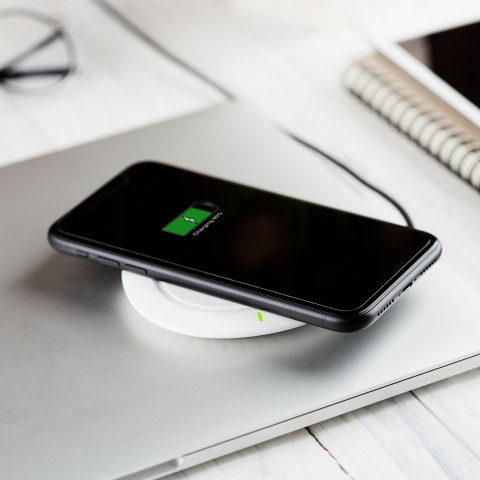
It takes only a few steps to set up any of your devices to read and type in German. It’s super-easy on your mobile phone and tablet, and a simple process on your computer.
On your computer, you’ll first activate the onscreen keyboard to work with. You’ll only be using your mouse or touchpad/pointer for this keyboard. Then, you’ll need to change the language setting to German, so all text will appear in German. You could also opt to use online keyboards instead. Read on for the links!
On your mobile devices, it’s even easier—you only have to change the keyboard. We also provide a few alternatives in the form of online keyboards and downloadable apps.
3. How to Activate an Onscreen Keyboard on Your Computer
1- Mac
1. Go to System Preferences > Keyboard.
2. Check the option “Show Keyboard & Character Viewers in Menu Bar.”
3. You’ll see a new icon on the right side of the main bar; click on it and select “Show Keyboard Viewer.”
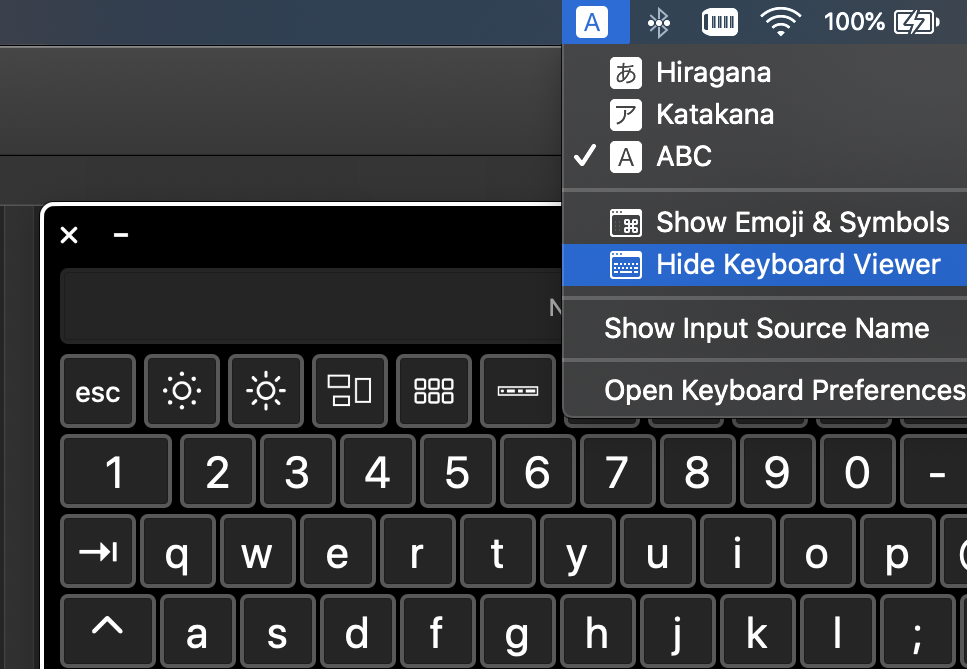
2- Windows
1. Go to Start > Settings > Easy Access > Keyboard.
2. Turn on the option for “Onscreen Keyboard.”
3- Online Keyboards
If you don’t want to activate your computer’s onscreen keyboard, you also have the option to use online keyboards. Here are some good options:
4- Add-ons of Extensions for Browsers
Instead of an online keyboard, you could also choose to download a Google extension to your browser for a language input tool. The Google Input Tools extension allows users to use input tools in Chrome web pages, for example.
4. How to Change the Language Settings to German on Your Computer

Now that you’re all set to work with an onscreen keyboard on your computer, it’s time to download the German language pack for your operating system of choice:
- Windows 8 (and higher)
- Windows 7
- Mac (OS X and higher)
1- Windows 8 (and higher)
- Go to “Settings” > “Change PC Settings” > “Time & Language” > “Region & Language.”
- Click on “Add a Language” and select “German.” This will add it to your list of languages. It will appear as Deutsch (Country of your choice) with the note “language pack available.”
- Click on “Deutsch” > “Options” > “Download.” It will take a few minutes to download and install the language pack.
- As a keyboard layout, you’ll only need the one marked as “German – Deutsch.” You can ignore other keyboard layouts.
2- Windows 7
1. Go to Start > Control Panel > Clock, Language, and Region.
2. On the “Region and Language” option, click on “Change Keyboards or Other Input Methods.”
3. On the “Keyboards and Languages” tab, click on “Change Keyboards” > “Add” > “German.”
4. Expand the option of “German” and then expand the option “Keyboard.” Select the keyboard layout marked as “German.” You can ignore other keyboard layouts. Click “OK” and then “Apply.”
3- Mac (OS X and higher)
If you can’t see the language listed, please make sure to select the right option from System Preferences > Language and Region
1. From the Apple Menu (top left corner of the screen) go to System Preferences > Keyboard.
2. Click the Input Sources tab and a list of available keyboards and input methods will appear.
3. Click on the plus button, select “German,” and add the “German” keyboard.
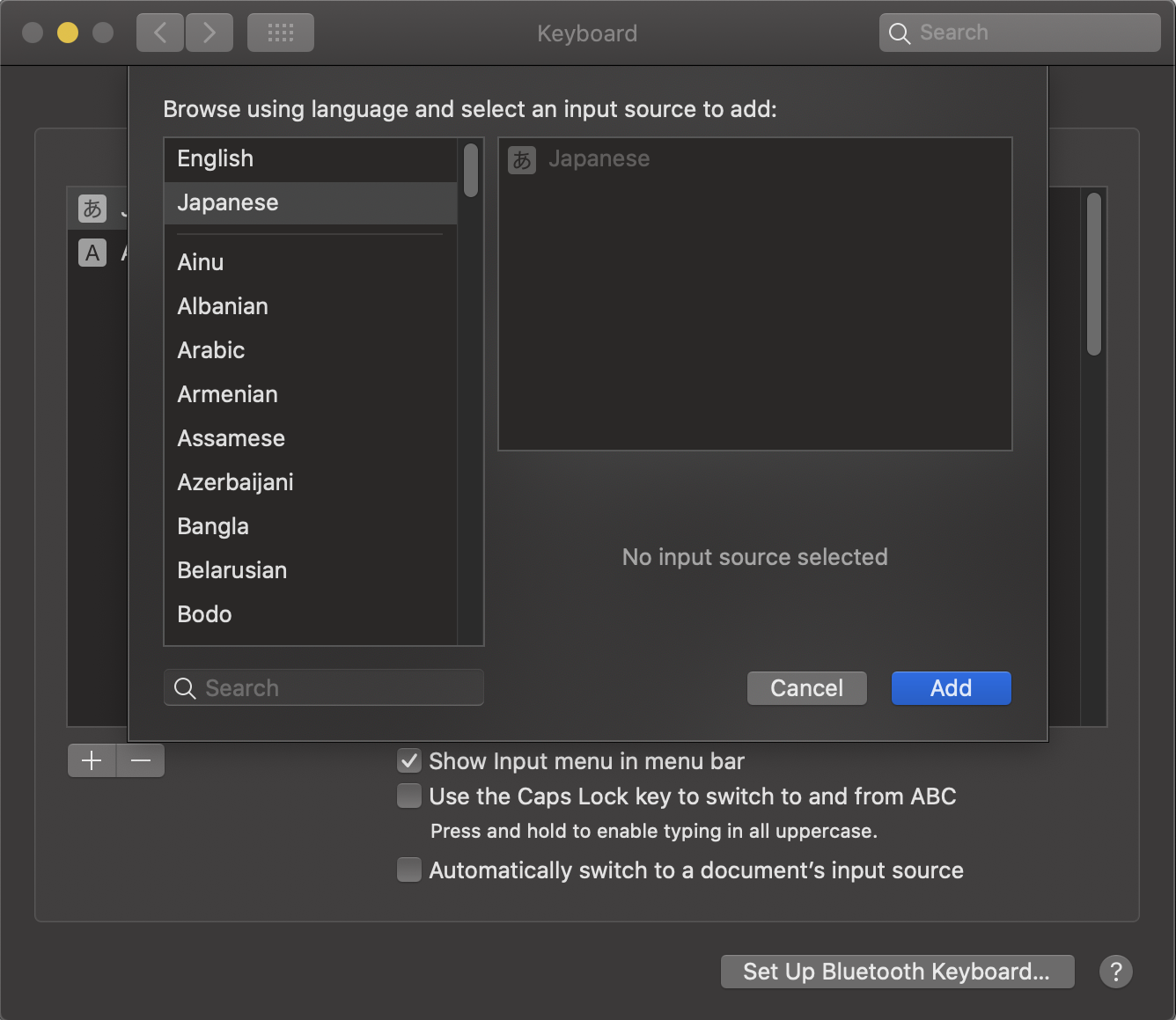
5. Activating the German Keyboard on Your Mobile Phone and Tablet
Texting and searching in German will greatly help you master the language! Adding a German keyboard on your mobile phone and/or tablet is super-easy.
You could also opt to download an app instead of adding a keyboard. Read on for our suggestions.
Below are the instructions for both iOS and Android mobile phones and tablets.
1- iOS
1. Go to Settings > General > Keyboard.
2. Tap “Keyboards” and then “Add New Keyboard.”
3. Select “German” from the list.
4. When typing, you can switch between languages by tapping and holding on the icon to reveal the keyboard language menu.
2- Android
1. Go to Settings > General Management > Language and Input > On-screen Keyboard (or “Virtual Keyboard” on some devices) > Samsung Keyboard.
2. Tap “Language and Types” or “ + Select Input Languages” depending on the device and then “MANAGE INPUT LANGUAGES” if available.
3. Select “Deutsch” from the list.
4. When typing, you can switch between languages by swiping the space bar.
3- Applications for Mobile Phones
If you don’t want to add a keyboard on your mobile phone or tablet, these are a few good apps to consider:
6. German Keyboard Typing Tips
Typing in German can be very challenging at first! Therefore, we added here a few useful tips to make it easier to use your German keyboard.

1- Computer
- Windows 10: Hot keys to activate the keyboard – “Windows + Strg + O”
- Windows 10: Open the Start menu > enter “Bildschirmtastatur,” > click on “Bildschirmtastatur” among the available options. This will bring up the Windows keyboard pre-installed on your computer.
- You have the Umlauts “Ü” (to the right of the “P”) and “Ö” and “Ä” to the right of the “L” available, as well as the “ß” next to “0” (zero).
- Decimal separators in German and English are vice-versa(!): English – 999.50 EUR. German – 999,50 EUR. English – 1,000.50 EUR. German – 1.000,50 EUR.
2- Mobile Phones
- To type the German umlauts ä, ö, ü, and the ß: Tap and hold the letter to which you’ll add the umlaut. For example, to type an ä, tap and hold the “a” key. Wait for the symbols list to open. Swipe your finger along the line until you reach the “ä” and then take your finger off the screen to insert it. Use the same process with the corresponding letters to create an ö or an ü. For the ß, use the “s.”
- Decimal separators in German and English are vice-versa(!): English – 999.50 EUR. German – 999,50 EUR. English – 1,000.50 EUR. German – 1.000,50 EUR.
7. How to Practice Typing German
As you probably know by now, learning German is all about practice, practice, and more practice! Strengthen your German typing skills by writing comments on any of our lesson pages, and our teacher will answer. If you’re a GermanPod101 Premium PLUS member, you can directly text our teacher via the My Teacher app—use your German keyboard to do this!

100 Hand-Picked German Verbs for Your Everyday Life
You know, German treats verbs differently.
In contrast to pretty much any other European language, German moves the verb all the way around the sentence quite often. They call it “verb-second” and “verb-final.”
All that to say, you’re going to need to know your German verbs well if you want to be a good German speaker. Here are one hundred of the best German verbs for beginners to learn—how many do you know already?
 Table of Contents
Table of Contents
- Regular Tourist Verbs in German
- Verbs at Home
- Verbs in the Kitchen
- Verbs at the University
- Verbs at Work
- Verbs for Your Spare Time
- Verbs at the Gym
- Verbs on a Date
- Conclusion
1. Regular Tourist Verbs in German

Everybody wants to travel to Germany at some point! Remember, work on your German accent and stay confident, and people will be surprised and pleased at your language abilities.
Here are some German verbs you need to know for your travels.
1. gehen – “go”
Wo gehen Sie hin?
“Where are you going?”
2. schlafen – “sleep”
Ich kann nicht schlafen.
“I can’t sleep.”
3. bleiben – “stay”
Wie lange bleibst du hier?
“How long are you staying here?”
4. bezahlen – “pay”
Kann ich mit der Karte bezahlen?
“Can I pay with a card?”
5. essen – “eat”
Was wollen Sie essen?
“What do you want to eat?”
6. trinken – “drink”
Gibt’s noch was zum trinken?
“Is there anything else to drink?”
7. kaufen – “buy”
Ich kaufe nur Android Handys.
“I only buy Android phones.”
8. verkaufen – “sell”
Ich möchte meine alten Kleider verkaufen.
“I want to sell all of my old clothes.”
9. bestellen – “to order (food)”
Möchten Sie bestellen?
“Would you like to order?”
10. bummeln – “to wander”
Nach der arbeit, bummelte er noch durch die Stadt.
“After work, he wandered through the city.”
11. chillen – “to relax,” “to chill”
Ich möchte heute etwas in dem Park chillen.
“I’d like to relax in the park for a bit today.”
12. wandern – “to hike”
Kann man in den Bergen wandern?
“Can you hike in the mountains?”
13. reservieren – “to reserve”
Sie haben kein Zimmer reserviert.
“You haven’t reserved a room.”
14. feiern – “to celebrate,” “to party”
Er feiert nächste Woche seinen Geburtstag.
“He’s celebrating his birthday next week.”
15. saufen – “to get drunk”
Saufen wir zu viel?
“Do we drink too much?”

2. Verbs at Home
One of the best ways to practice your German with nobody around is to simply describe to yourself what you’re doing at home, as you’re doing it. With nobody to hear, who cares if you make mistakes?
Here’s a list of German action verbs you can use around the house.
16. aufwachen – “wake up”
Ich muss jeden Tag um sechs Uhr früh aufwachen.
“I have to wake up every morning at 6 A.M.”
17. aufstehen – “to get up”
Ich stehe um zehn Uhr auf.
“I get up at ten.”
18. schlafen – “to sleep”
Sie schläft immer noch.
“She’s still sleeping.”
19. sich die Zähne putzen – “brush teeth”
Ich putze mir gerade die Zähne, warte mal kurz.
“I’m brushing my teeth right now, wait a moment.”
20. sich die Haare bürsten – “brush hair”
Ich hasse es, wenn jemand mir die Haare bürstet.
“I hate it when someone brushes my hair.”
21. das Bett machen – “make the bed”
Wann wirst du dein Bett machen?
“When are you going to make your bed?”
22. sich duschen – “to shower”
Ich dusche mich zweimal in der Woche.
“I take a shower twice a week.”
23. staubsaugen – “to vacuum”
Bitte, könntest du unter dem Bett noch mal staubsaugen?
“Please, could you vacuum under the bed again?”
24. bügeln – “to iron”
Ich bügle nie meine Hemden.
“I never iron my shirts.”
25. waschen – “to wash”
Hast du deine Hände gewaschen?
“Did you wash your hands?”
26. aufräumen – “to clean up”
Können Sie bitte die Küche aufräumen?
“Could you please clean up the kitchen?”
27. fernsehen – “to watch TV”
Ich sehe selten fern.
“I don’t watch TV often.”
28. lesen – “to read”
Was lesen Sie gerade?
“What are you reading now?”
29. anhören – “to listen (to something)”
Hörst du deutsche Hörbücher?
“Do you listen to German audiobooks?”
3. Verbs in the Kitchen

You don’t find a whole lot of German restaurants outside of Europe, but if you should happen to visit Germany, be sure to check out the local specialties in every state. When you come back, use these verbs to describe how the dishes are made!
Here are some good German verbs to know related to the kitchen and cooking.
30. kochen – “to cook,” “to boil”
Ich koche jeden Tag Eier.
“I cook eggs everyday.”
31. umrühren – “to stir”
Rühr die Suppe um.
“Stir the soup.”
32. backen – “to bake”
Kannst du Kekse backen?
“Can you bake cookies?”
33. vorheizen – “to preheat”
Den Backofen auf einhundert achtzig Grad vorheizen.
“Preheat the oven to one hundred eighty degrees.”
34. erhitzen – “to heat up”
Erhitzen Sie das Öl in der Pfanne.
“Heat up oil in the pan.”
35. einfrieren – “to freeze”
Wenn du es nicht essen willst, können wir es einfrieren.
“If you don’t want to eat it, we can freeze it.”
36. frühstücken – “to eat breakfast”
Ich frühstücke immer auf Arbeit.
“Where are we going to eat breakfast?”
37. Abendessen essen – “eat dinner”
Er isst Abendessen allein zu Hause.
“He is eating dinner alone at home.”
38. anbrennen – “to burn (food)”
Oh nein, ich habe das Sandwich angebrannt!
“Oh no, I burned the sandwich!”
39. schneiden – “to cut”
Wir schneiden den Teig mit einem Messer.
“We cut the dough with a knife.”
40. nach etwas schmecken – “to taste like something”
Das hier schmeckt nach altem Käse.
“This tastes like old cheese.”
41. probieren – “to try”
Schnecken würde er niemals probieren.
“He would never give snails a try.”
42. salzen – “to salt”
Als Nächstes werde ich das gericht salzen.
“Next, I’ll salt the dish.”
- → Check out our vocabulary list on Useful Phrases for Ordering Food for even more practical phrases you can practice these verbs with.
4. Verbs at the University

German universities generally have some strict entrance requirements, but that’s because they want to keep their well-known academic standards high. With nearly free tuition for international students and an unforgettable immersion experience, what’s not to love?
Here’s a list of common German school verbs you’ll hear all the time while attending a university.
43. schreiben – “to write”
Ich kann nicht so gut schreiben.
“I can’t write very well.”
44. studieren – “to study (a subject)”
Ich studiere Geschichte als Hauptfach.
“I’m studying history as my major.”
45. lernen – “to study (for review),” “to learn”
Haben Sie für die Prüfung gelernt?
“Did you study for the test?”
46. auswendig lernen – “to learn something by heart”
Du hast das ganze Buch auswendig gelernt?!
“You learned the whole book by heart?!”
47. anmelden – “to register”
Wo melde ich mich an?
“Where do I register?”
48. forschen – “to research”
Forschen Sie lieber oder lehren Sie lieber?
“Do you prefer researching or teaching?”
49. sich verabreden – “make an appointment”
Wir haben uns schon verabredet.
“We’ve made an appointment.”
50. den Unterricht schwänzen – “to skip classes”
Ich habe niemals im Leben den Unterricht geschwänzt.
“I have never, in my life, skipped classes.”
51. spicken – “to cheat”
Sie wurden beim spicken erwischt.
“They were caught cheating.”
52. bestehen – “to pass”
Ich will meine Deutschprüfung bestehen!
“I want to pass my German test!”
53. durchfallen – “to fail”
Viele Studenten sind dieses Jahr durchgefallen.
“Lots of students failed this year.”
54. wiederholen – “to repeat”
Können Sie das bitte wiederholen?
“Could you please repeat that?”
55. überzeugen – “to convince”
Ich bin immer noch nicht überzeugt.
“I’m still not convinced.”
56. vorlesen – “to read aloud”
Kannst du den Satz bitte vorlesen?
“Could you please read the sentence aloud?”
57. lehren – “to teach”
Er lehrt im Gymnasium.
“He teaches at the secondary school.”
58. verpassen – “to miss”
Ich habe meinen Bus verpasst!
“I missed my bus!”
59. einen Abschluss machen – “to graduate”
Sie hat ihren Abschluss noch nicht gemacht.
“She hasn’t yet graduated.”
5. Verbs at Work

It’s only logical that you’d get a job in a German-speaking country after your German degree. And even if you haven’t moved to Germany yet, speaking German is a valuable asset to include on your resume.
Here are a few German verbs you must know before snatching that job.
60. Kaffee machen – “to brew coffee”
Ich werde mir einen Kaffee machen, möchtest du auch einen?
“I’ll brew myself a coffee, would you like one as well?”
61. pünktlich sein – “to be on time”
Wie kann er immer pünktlich sein?
“How can he always be on time?”
62. sich verspäten – “to delay,” “to be late”
Das Kind verspätet sich immer.
“The child is always late.”
63. anstellen – “to hire”
Stellen Sie hier viele Frauen an?
“Do you hire many women here?”
64. entlassen – “to fire”
Vorsicht, du könntest dafür entlassen werden.
“Watch out, you could be fired for that.”
65. arbeiten – “to work”
Wo arbeiten Sie?
“Where do you work?”
66. kündigen – “to quit”
Ich werde in zwei Wochen kündigen.
“I’m quitting in two weeks.”
67. erklären – “to explain”
Wir können diese Situation erklären.
“We can explain this situation.”
68. jammern – “to babble”
Er jammert stundenlang in seinem Büro.
“He babbles constantly in his office.”
69. telefonieren – “to make a call”
Haben Sie mit der Abteilungsleiterin telefoniert?
“Did you call the department manager?”
70. drucken – “to print”
Wir drucken zu viele Sachen.
“We’re printing too many things.”
71. speichern – “to save”
Ich habe das Dokument nicht gespeichert!
“I didn’t save the document!”
72. schicken – “to send”
Ich habe es dir in einer E-Mail geschickt.
“I sent it to you via email.”
73. verhandeln – “to negotiate”
Ich muss ein besseres Gehalt verhandeln.
“I have to negotiate a better salary.”

6. Verbs for Your Spare Time
Everybody has their hobbies. Whether you just have to take a German exam or like to chat, having interesting hobbies can make you a fascinating conversationalist.
Here are a few German hobby verbs to memorize.
74. zeichnen – “to draw”
Ich zeichne keine Menschen.
“I don’t draw people.”
75. skizzieren – “to sketch”
Er skizziert ein Turm.
“He sketches a tower.”
76. malen – “to paint”
Ich male gern mit den Kindern.
“I like to paint with the kids.”
77. fotografieren – “to take photos”
Ich fotografiere viele Blumen.
“I take a lot of pictures of flowers.”
78. Gitarre spielen – “to play guitar”
Es ist lange her seitdem ich Gitarre gespielt habe.
“It’s been a long time since I played guitar.”
79. programmieren – “to program”
Ich programmiere sechs Stunden pro Tag.
“I program for six hours a day.”
80. klettern – “to climb”
Ist es erlaubt, hier zu klettern?
“Is it allowed to climb here?”
81. aufnehmen – “to record”
Ich nehme alle meiner Lieder auf.
“I record all my songs.”
82. üben – “to practice”
Ich übe jeden Tag Deutsch.
“I practice German everyday.”
83. fahren – “to drive,” “to ride”
Ich fahre gern Fahrrad.
“I like riding bikes.”
84. bolzen – “to play soccer”
Manchmal nach der Arbeit gehe ich mit den Jungs bolzen.
“Sometimes after work, I play soccer with the boys.”
7. Verbs at the Gym

Overall, Germany is a pretty healthy country. People do a lot of walking and biking, and if you want to get in on that action, you should have the vocabulary to say so in German.
Here are a few different German verbs for the gym and outdoor exercise.
85. trainieren – “to exercise”
Trainierst du jeden Tag?
“Do you work out everyday?”
86. laufen – “to run”
Sie läuft im Park.
“She is running in the park.”
87. Gewichte heben – “to lift weights”
Wieviel kannst du heben?
“How much can you lift?”
88. pumpen – “to work out”
Ich war gestern im Fitnessstudio pumpen.
“I went to the gym yesterday to work out.”
89. joggen – “to jog”
Ich jogge zwei mal die Woche im Mauerpark.
“I’m jogging twice a week in Mauerpark.”
90. schwimmen – “to swim”
Kann man in dem Rhein schwimmen?
“Can you swim in the Rhine?”
91. einen Muskelkater kriegen – “(to get) muscle soreness”
Kriegst du keine Muskelkater?
“Don’t you ever get sore muscles?”
92. sich wiegen – “to weigh oneself”
Du solltest dich nicht zu oft wiegen.
“You shouldn’t weigh yourself too often.”
93. sich entspannen – “to relax oneself”
Es ist schwer, mich zu entspannen.
“It’s hard to relax.”
94. abnehmen – “to lose weight”
Ich versuche etwas abzunehmen.
“I’m trying to lose some weight.”
95. zunehmen – “to gain weight”
Ich nehme immer noch zu.
“I’m still gaining weight.”

8. Verbs on a Date
Have you met a special someone? These are the activities you might get up to in German:
96. rauchen – “to smoke”
Rauchst du?
“Do you smoke?”
97. lachen – “to laugh”
Sie lachten laut und lang.
“They laughed loud and long.”
98. lächeln – “to smile”
Er lächelte und sagte, sie sei schön.
“He smiled and said she was beautiful.”
99. umarmen – “to hug”
Sie haben sich zum Abschied umarmt.
“They hugged each other goodbye.”
100. küssen – “to kiss”
Kann ich dich küssen?
“Can I kiss you?”
That’s enough for this section—take a look at our Valentine’s Day article for more!
9. Conclusion
Congratulations! That’s 100 German verbs in sentences for context.
How many of the words on this German verbs list were new to you? Let us know in the comments!
The best way to study a list like this is to read it a couple of times for several days in a row. After the second or third time through, you’ll have already internalized some of the key structures.
Even better than that is going onto GermanPod101.com and listening to our vast podcast lesson library, complete with transcripts and translations. Listen for a couple of hours, and you’ll hear more verbs than you ever dreamed of!

You And Me Against the World Of German Pronouns

You already know you need to learn about German pronouns. They’re a small but absolutely indispensable part of learning a new language.
Congratulations – you mostly know them already!
German pronouns are almost the same as the English ones, with just a couple more here and there. You know, plural second person, formal address, all that good stuff like in other European languages.
The only difficult part is, well, the grammar. Each pronoun has several different forms based on what case it’s in. You not only need to know what that means, but you also need to get used to actually making those changes during natural speech.
Since cases are the key to really understanding German pronouns, let’s start with those.
 Table of Contents
Table of Contents
- Opening Up The Cases
- German Pronouns in the Nominative
- Accusative German Pronouns
- Dative German Pronouns
- Genitive Case
- Conclusion
1. Opening Up The Cases

Cases, for all their difficult reputation, are just different forms of words to mark their grammatical function, such as subject or object in the sentence. English shows that only with pronouns: she is the subject form (“she does something”) of an English pronoun, and her is the object (“something happens to her”).
German marks many parts of speech for case, especially pronouns. German has four cases, but that doesn’t mean four pronoun forms – there are overlaps. You’ll see that very quickly.
Traditionally, the German cases are known as Nominative (subject), Accusative (object), Dative (indirect object), and Genitive (possession).
Let’s have a look at an English sentence to illustrate.
Her brother gave me the book.
Here, “her” is a possessive pronoun. “Brother” is the subject. “Me” is the indirect object. And “the book” is the direct object.
All of these kind of blend together in English, but in German, the parts of the sentence are usually crystal clear.
This, by the way, doesn’t mean German is any better or worse of a language than English for having cases.
It’s simply the way the language developed. Thousands of years ago, every language spoken in Europe had complex cases, but over time, some of them combined and others were lost entirely in different languages. It’s a natural cycle, and in a few more centuries German might lose its cases – or even give them to English!
2. German Pronouns in the Nominative

“Nominative” is the first German case, used to mark the subject. It’s the basic form of the word, and therefore the simplest to translate directly into English.
Here’s a brief chart of the personal pronouns in English and their counterparts in German, all in the nominative case.
| English | German |
|---|---|
| I | ich |
| You (informal) | du |
| You (plural) | ihr |
| We | wir |
| He | er |
| She | sie |
| It | es |
| You (formal) | Sie |
| They | sie |
As you can tell, German distinguishes between three different kinds of “you:” Formal, used for talking to strangers older than you or people like bosses or professors; informal, used for friends, relatives, and strangers younger than you, and plural, used when you’re talking to a group of people in an informal setting. When speaking formally to a group, the formal pronoun pulls double duty.
This makes sense from an English perspective too, by the way. A couple of centuries ago, “you” was both the plural and the formal in English, and “thou” was the informal singular. German still makes that distinction – and even uses ihr to refer to one person in particularly formal or traditional settings, such as an apprentice to their master.
Also take note of capitalization! Only the formal Sie is always capitalized in German, though du is sometimes capitalized in advertisements or in magazines for young people. It can seem a little weird for English speaker to keep ich in lowercase, though naturally that’s balanced out by all the other capital letters floating around in German.
Let’s see some examples!
Sie ist Taxifahrerin.
She is a taxi driver.
Sie sind ein guter Lehrer.
You’re a good teacher.
Sie haben heute viel zu tun.
They have a lot of work to do today / You have a lot of work to do today.
These sentences illustrate how you have to rely on either the verb conjugation, the context, or both to make the meaning clear. Here, though, are some easier ones:
Ich wohne in Belgien.
I live in Belgium.
Hast du Hunger?
Are you hungry?
3. Accusative German Pronouns

“Accusative” is the case that marks the object. First, the chart for reference.
| English | German |
|---|---|
| Me | mich |
| You (informal) | dich |
| You (plural) | euch |
| Us | wir |
| Him | ihn |
| Her | sie |
| It | es |
| You (formal) | Sie |
| They | sie |
Not a whole lot of difference from the nominative case! Less than half change at all from nominative to accusative. And here’s how you know when to make that change.
Whenever you’d say “me” in English to express the same concept, use the accusative in German. Think about a couple of verbs for a moment: “Pat sees me.” “The coach hit me.” Those verbs are going to be accusative in German too, and so look at the examples:
Hast du ihn gesehen?
Did you see him?
Ich werde euch nicht beraten.
I won’t give you (plural) advice.
Magst du mich?
Do you like me?
It’s easy to find lists online of the most common accusative verbs in German. You can also look for set phrases, because many German preposition-verb combinations take a specific case. Thus, for “to think of somebody,” the preposition is always an and the phrase is an jemanden dachten.
Of course, knowing when to use the pronouns is one thing, but learning to actually produce them accurately under pressure is more difficult.
4. Dative German Pronouns
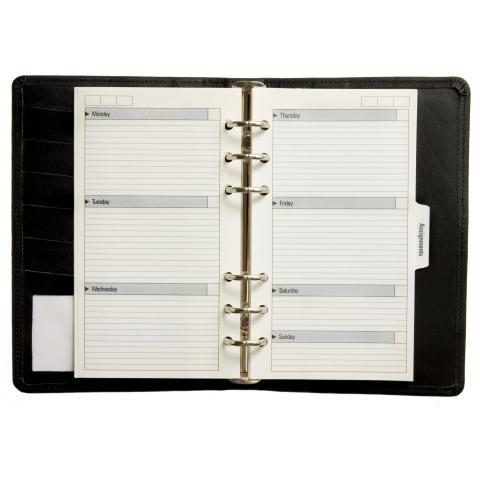
The “dative” case marks the indirect object. In German, some verbs require a dative case pronoun even if you think it would logically be accusative, such as “to help.”
Können Sie mir helfen?
Can you help me?
That’s not mich like we learned before! Take a look at the next chart:
| English | German |
|---|---|
| Me | mir |
| You (informal) | dir |
| You (plural) | euch |
| Us | uns |
| Him | ihm |
| Her | ihr |
| It | ihm |
| You (formal) | Ihnen |
| They | ihnen |
English no longer distinguishes between accusative and dative. Instead, you can think of dative as being something like “to me.” Whenever you want to say “to me” in English, translate it as mir in German.
These pronoun forms, if anything, are used more frequently than accusative forms in everyday German. Of course that depends on what you’re talking about and what verbs you’re using, but take service German for instance.
Wir wünschen Ihnen einen schönen Tag.
We wish you a good day.
5. Genitive Case

By the way, what happened to the genitive case?
To be honest, there are in fact genitive pronouns in German, but they’re very rarely used. Here’s a list of those pronouns:
- meiner “of me”
- deiner “of you “
- Ihrer “of you”
- seiner “of him, of it”
- ihrer “of her, of it”
- seiner “of it”
- unser “of us”
- euer “of you”
- Ihrer “of you “
- ihrer “of them”

So fall, all of our charts have been separated by case. That was to make it easier to handle. Crack open any German textbook, though, and you’ll see a nice big chart with every case all at once.
Now that you’re comfortable with each case at a time, let’s open it up and show off the demonstrative pronouns in every German case.
| Masculine | Feminine | Neutral | Plural | |
|---|---|---|---|---|
| Nominative | dieser | diese | dieses | diese |
| Accusative | diesen | diese | dieses | diese |
| Dative | diesem | dieser | diesem | diesen |
| Genitive | dieses | dieser | dieses | dieser |
This looks surprisingly like the charts for ordinary German articles – so once you learn the case endings for those, you’re good to go here as well!
In written or formal German, the word jener is used to say “those,” while dieser is used for “these.” Jener has the same endings, so it’s not too hard to learn, but the truth is, people just say dieser for both “these” and “those.”
Kennen Sie diesen Mann?
Do you know this man?
Mit der Hilfe meiner Frau, habe ich diese Stelle bekommen.
With the help of my wife, I got this job.
One more important type of pronoun is a reflexive pronoun, used with a huge number of German verbs. It’s the equivalent to English pronouns like “myself” or “ourselves.” Also, it’s mostly identical to the accusative and dative pronouns we saw earlier, but with one nice simplification.
The only change is that you have to say sich (in both accusative and dative) for the third person. Put another way, “himself,” “herself,” and “itself” all translate to sich in German.
Sie wäscht sich täglich.
She is washing herself everyday.
6. Conclusion

You might be thinking, “Do I really have to memorize those charts?”
Well, yes and no. Memorizing the charts and being able to write them by hand does have some real advantages. You’ll be able to compose and revise accurate texts, for one, since you’ll know all the rules by heart.
But developing a feel for the language is just as important.
And that comes with time. It’s a slow process that requires a whole lot of actual German content to be read, watched, and listened to.
Fortunately, you can achieve both goals quite easily right here on GermanPod101.com! We have excellent grammar resources as well as a real treasure trove of vocabulary lists – and that’s not even mentioning our flagship podcast series!
Relax with our German learning material and watch as it slowly becomes second nature to use the correct German pronoun every time.
In the meantime, don’t hesitate to reach out in the comments section with any questions you have about German pronouns. We’ll do our best to help!

Premium PLUS: The Golden Ticket for Language-Learning
Do you remember the moment you fell in love with languages?
Do you desire to learn or advance in German quickly and effectively?
Then you need a German tutor.
A common question that first-time language-learners ask is “Where do I begin?” The answer? Guidance.
For native English-speakers who want to learn Asian languages, for example, timelines provided by the U.S. Foreign Service Institute can appear discouraging. However, defeating these odds is not unheard of. If you want to beat the odds yourself, one of the best learning options is a subscription to Premium PLUS from Innovative Language.
As an active Premium PLUS member of JapanesePod101.com and KoreanClass101.com myself, I have an enjoyable experience learning at an accelerated pace with at least thirty minutes of study daily. The following Premium PLUS features contribute to my success:
- Access to thousands of lessons
- A voice recorder
- Spaced-repetition system (SRS) flashcards
- Weekly homework assignments
- A personal language instructor
As someone who decided to make Japanese her second language one year ago, I am extremely grateful for Premium PLUS.
Allow me to emphasize on how these Premium PLUS features strengthen my language studies.
Gain Unlimited Access to Audio and Video Lessons!
As a Premium PLUS member, I have full access to the lesson library and other Premium features. Best of all, I’m not limited to one level; I can learn to my heart’s content with upper-level courses.
There are lessons on various topics that tackle crucial language-learning elements, such as:
- Reading
- Writing
- Listening
- Speaking
- Conversation
Specifically, there are pathways. Pathways are collections of lessons that center on a specific topic. Some Innovative Language sites, like JapanesePod101.com, even have pathways geared toward proficiency tests. For example, the JLPT N3 Master Course pathway.
Because of the abundance of lessons, I’ve found pathways in the lesson library to help me prepare for certain events. Thanks to the “Speaking Perfect Japanese at a Restaurant” pathway, I spoke fully in Japanese while dining in Japan. Additionally, I participated in conversations at language exchange meetups in South Korea after completing the “Top 25 Korean Questions You Need to Know” pathway.
Each lesson has lesson notes, which I read while simultaneously listening to the audio lesson. This strategy enables me to follow along on key points. Lesson notes generally contain the following:
- Dialogue
- Vocabulary
- Grammar points
- Cultural insights
As someone who’s constantly on-the-go, I heavily benefit from mobile access to lessons. Podcasts and lesson notes are available on the Innovative Language app and/or Podcasts app for iOS.
All lessons and their contents are downloadable. Prior to my flights to Japan and South Korea, I downloaded lessons on my iPhone. The apps make learning more convenient for me during my commutes.
Practice Speaking with the Voice Recording Tool!
Pronunciation is an essential ingredient in language-learning. Proper pronunciation prompts clear understanding during conversations with native speakers.
Prior to learning full Korean sentences, my online Korean language tutor assigned the “Hana Hana Hangul” pathway to me. It demonstrated the writing and pronunciation of Hangul, the Korean alphabet. Throughout this pathway, I submitted recordings of my Hangul character pronunciations to my language teacher for review.
I was given a similar task on JapanesePod101.com with the “Ultimate Japanese Pronunciation Guide” pathway. My Japanese language teacher tested my pronunciation of the Japanese characters kana. My completion of the two pathways boosted my confidence in speaking.
Speaking is one of the more challenging components of learning a language. The voice recording tool in particular was a great way for me to improve my speaking skills. Further, because the lesson dialogues are spoken by native speakers, I’m able to practice speaking naturally.
This feature is also available for vocabulary words and sample sentences. Being able to hear these recordings improves my pronunciation skills for languages like Japanese, where intonation can change the meaning of a word entirely. The voice recorder examines my speed and tone. I also follow up by sending a recording to my online language tutor for feedback.
A great way to boost one’s speaking confidence is to shadow native speakers. During the vocabulary reviews, it’s helpful for me to hear the breakdown of each word; doing so makes a word that was originally difficult to even read a breeze to say!
Some lessons create opportunities to speak your own sentences. For example, the “Top 25 Korean Questions You Need to Know” pathway presents opportunities to answer questions personally. This helps you gain the ability to give answers as the unique individual you are.
Example Scenario:
The host asks the following question:
어디에 살고 있습니까?
eodieseo salgo isseumnikka
“Where do you live?”
If you live in Tokyo, you would readily say the following:
도쿄에 살고 있습니다.
Tokyo-e salgo isseumnida.
“I live in Tokyo.”
Increase Your Vocab with Spaced-Repetition Flashcards and More!
Imagine having a conversation with a native speaker and hesitating because you lack a solid vocabulary base.
Premium PLUS offers various features to expand learners’ vocabulary, including Free Gifts of the Month. GermanPod101’s free gifts for April 2020 included an e-book with “400 Everyday Phrases for Beginners,” and the content is updated every month. When I download free resources like this, I find opportunities to use them with co-teachers, friends, or my language tutors.
An effective way to learn vocabulary is with SRS flashcards. SRS is a system designed for learning a new word and reviewing it in varying time intervals.
You can create and study flashcard decks, whether it’s your Word Bank or a certain vocabulary list. For example, if you need to visit a post office, the “Post Office” vocabulary list for your target language would be beneficial to study prior to your visit.
In addition to the SRS flashcards, each lesson has a vocabulary slideshow and quiz to review the lesson’s vocabulary.
There’s also the 2000 Core Word List, which includes the most commonly used words in your target language. Starting from the 100 Core Word List, you’ll gradually build up your knowledge of useful vocabulary. These lists can be studied with SRS flashcards, too.
With the SRS flashcards, you can change the settings to your liking. The settings range from different card types to number of new cards per deck. Personally, I give myself vocabulary tests by changing the settings.
After studying a number of flashcards, I change the card types to listening comprehension and/or production. Then I test myself by writing the translation of the word or the spoken word or phrase.
The change in settings allow me to remember vocabulary and learn how to identify the words. This is especially helpful with Japanese kanji!
Complete Homework Assignments!
Homework assignments are advantageous to my language studies. There are homework assignments auto-generated weekly. They range from multiple-choice quizzes to writing assignments.
Language tutors are readily available for homework help. Some writing assignments, for instance, require use of unfamiliar vocabulary. In such cases, my language teachers assist me by forwarding related lessons or vocabulary lists.
In addition to these auto-generated homework tasks, language tutors customize daily assignments. My daily homework assignments include submitting three written sentences that apply the target grammar point of that lesson, and then blindly audio-recording those sentences. My personal language tutor follows up with feedback and corrections, if needed.
Your language tutors also provide assignments upon requests. When I wanted to review grammar, my Korean teacher sent related quizzes and assignments. Thus, you are not only limited to the auto-generated assignments.
Every weekend, I review by re-reading those written sentences. It helps me remember sentence structures, grammar points, and vocabulary to apply in real-world contexts.
Furthermore, I can track my progress with language portfolios every trimester. It’s like a midterm exam that tests my listening, speaking, reading, and writing skills.
Get Your Own Personal Language Teacher!
My language teachers cater to my goals with personalized and achievable learning programs. The tangible support of my online language teachers makes it evident that we share common goals.
Once I share a short-term or long-term goal with my teacher, we establish a plan or pathway that will ultimately result in success. I coordinate with my teachers regularly to ensure the personalized learning programs are prosperous. For example, during my JLPT studies, my Japanese language tutor assigned me practice tests.
Your language tutor is available for outside help as well. When I bought drama CDs in Japan, I had difficulty transliterating the dialogue. My Japanese teacher forwarded me the script to read along as I listened.
Additionally, I often practice Korean and Japanese with music. I memorize one line of the lyrics daily. Every time, I learn a new grammar point and new vocabulary. I add the vocabulary to my SRS flashcards, locate the grammar in the Grammar Bank, and study the associated lessons online.
I send my teachers the name of the songs, making them aware of my new goal. One time, my song for Korean was “If You Do” by GOT7. My Korean teacher revealed that she was a huge fan of GOT7 like me! For Japanese, it was “CHA-LA HEAD-CHA-LA,” also known as the Dragonball Z theme song. My Japanese teacher excitedly told me that she sang the song a lot as a kid!
A remarkable thing happened to me in South Korea. I was stressed about opening a bank account with limited Korean. I sought help from my Korean teacher. She forwarded me a script of a bank conversation.
After two days, I visited the local bank. It all started with my opening sentence:
은행 계좌를 만들고 싶어요
eunhaeng gyejwaleul mandeulgo sip-eoyo.
I want to open a bank account.
Everything went smoothly, and I exited the bank with a new account!
The MyTeacher Messenger allows me to share visuals with my teachers for regular interaction, including videos to critique my pronunciation mechanisms. I improve my listening and speaking skills by exchanging audio with my teachers. In addition to my written homework assignments, I exchange messages with my language teachers in my target language. This connection with my teachers enables me to experience the culture as well as the language.
Why You Should Subscribe to Premium PLUS
It’s impossible for me to imagine my continuous progress with Japanese and Korean without Premium PLUS. Everything—from the SRS flashcards to my language teachers—makes learning languages enjoyable and clear-cut.
You’re assured to undergo the same experience with Premium PLUS. You’ll gain access to the aforementioned features as well as all of the Premium features.
Complete lessons and assignments to advance in your target language. Increase your vocabulary with the “2000 Core Word List” for that language and SRS flashcards. Learn on-the-go with the Innovative Language app and/or Podcasts app for iOS users.
Learning a new language takes dedication and commitment. The Premium PLUS features make learning irresistibly exciting. You’ll look forward to learning daily with your language tutor.
As of right now, your challenge is to subscribe to Premium PLUS! Complete your assessment, and meet your new German teacher.
Have fun learning your target language in the fastest and easiest way!
Subscribe to Posted by GermanPod101.com in Feature Spotlight, German Language, German Online, Learn German, Site Features, Speak German, Team GermanPod101 Comment
Directions in German: Stay On the Straight and Narrow

You leave your hotel and bundle yourself up against the winter cold in Kiel, northern Germany.
It’s your first night and you’re not too sure where you are in town, so you glance at a street sign to make sure you know where to get back to. The directions in German read Einbahnstraße. Perfect.
After a while of walking it gets later and later and you can’t seem to remember any of the landmarks you thought you remembered.
Not to worry, you speak German! You stop a passerby, and in your best accent ask, Wo ist Einbahnstraße?
The person you stop smirks, having marked you as a foreigner right away. “Einbahnstraße,” comes the reply, “means ‘one-way street.’”
A pretty spooky story, and it could happen to you! Unless, that is, you learn all there is to know about German directions.
Mastering the directions in a foreign language is freeing for two simple reasons. First, you can feel quite confident asking anybody nearby about the city.
Second, if you happen to give advice to a local, you’ll feel like a master-class German speaker! Here’s how you can learn that superpower.
1. Where is it?

The German question for where something is located is almost painfully similar to English.
- Wo ist…?
“Where is…?”
Be extra-careful here that you don’t confuse the other question pronoun wer, meaning “who,” for the English “where.” It’s the kind of mistake that’s easy to make as a learner when you’re just starting out with German, but don’t worry—after a couple of months of studying, you’ll be surprised that it was ever confusing.
A more complex and formal way to ask is to use the phrase Wo befindet sich…? Don’t get confused because of the befindet. It might look like this sentence translates to “Where finds itself (the)…?” but the preposition be- turns the verb finden from “find” to “located.” You might hear this used to describe particular parts of a building, or perhaps a famous building.
- Das Hotel befindet sich in Paris.
“The hotel is located in Paris.”
When asking directions in German or receiving them, prepositions are your friends. Of course, there are definitely rules about using certain prepositions with certain cases, but don’t let that slow you down. One of the best ways to actually acquire that knowledge is to learn set phrases like this:
- Sie wohnt an der Hauptstraße.
“She lives on the High Street.”
The simple phrase an der Straße is easy to commit to memory, and it is in fact the dative form of the word die Straße.
The same with this phrase:
- Bist du neu hier in der Stadt?
“Are you new here in the city?”
Again, we have a feminine noun—die Stadt—that changes its article to der Stadt when in the dative case. The dative case is usually used for describing directions in Germany because it implies stationary locations, and buildings don’t shift around too much.
- Die Bäckerei ist neben dem Büro.
“The bakery is next to the office.”
2. How far is it?

Even if you’re not familiar with the specifics of German direction words just yet, you can always speak in general terms.
- Das ist weit weg von hier.
“That’s far away from here.”
Imagine you’re exploring Berlin with one of your local friends, and you would like to go to the Potsdamer Platz, so you ask if it’s okay to go there now. But your friend politely declines with:
- Der Potsdamer Platz, das ist weit weg von hier.
“The Potsdamer Platz, that’s far away from here.” - Das ist in der Nähe.
“That’s right in the vicinity (right nearby).”
Have you ever heard of the famous Mustafas Gemüse Kebab in Berlin? Let’s say you’ve arrived at the U-Bahn Station Mehringdamm, and you ask a woman if she knows where it is. She might answer:
- Mustafas Gemüse Kebab? Das ist hier in der Nähe.
“Mustafas Vegetable Kebab? That’s right nearby.”
Now, some general questions. These are simple, easy ways of asking for directions in German:
- Ist es weit?
“Is it far?” - Wie weit ist es zur Stadt?
“How far is it to the city?”
Here you should know a couple of great prepositions for distances.
- Die Gebäude sind weit entfernt.
“The buildings are very far away.”
Entfernt literally means “removed,” and if you visit German online forums, you’ll see that word used to mean “deleted” for a post or video. You can easily modify it with time expressions.
- Ich bin 10 Minuten entfernt von der Stadt.
“I’m ten minutes away from the city.”
Or distance expressions:
- Sie sind etwa zwei Kilometer entfernt.
“They’re about two kilometers away.”
Etwa is a bit informal, but it’s used all the time and has the excellent function of softening whatever guess you’re making about time or distance. What if you want to be a little more exact with your directions, though?
3. Giving Directions in German

Whether you’re getting directions in German from a hard-of-hearing old man in a village or giving directions to your taxi driver, you’ll definitely want to be able to understand the verb “to turn.” This verb is a hugely essential part of directions vocabulary in German.
- Biegen Sie hier ab.
“Turn here.” [Formal]
The words links, meaning “left,” and rechts, meaning “right,” are quite close to their English counterparts. Interestingly, in English and in German, the word for “the opposite of left” and “legal rights” come from the same root!
- Haben Tiere Menschenrechte?
“Do animals have human rights?”
Anyway, in order to give those directions, just stick your direction word into that phrase. Remember that abbiegen is a separable-prefix verb, so the prefix ab- will often go at the end.
- Biegen Sie da links ab.
“Turn left there.”
To ask a direction question that requires a specific answer, use this phrase:
- Wie komme ich zu…?
“How do I get to…?”
Zu is one of several prepositions in German that are always followed by the dative case, so pay attention to the article you use.
- Wie komme ich zu den Apartments?
“How do I get to the apartments?”
We’ve learned left and right, how about forward and back? There are two ways to tell somebody to go back. The first one is:
- Sie müssen umkehren.
“You have to turn.”
Um is a preposition indicating that the movement should happen in a circle, while kehren just means “to turn.” Literally, umkehren means something like “turn in a circle.”
- Gehen Sie geradeaus bis…
“Go straight ahead until…”
4. Get out your map of Germany
 know the cardinal directions in German: Nord, Süd, Ost, West. If you can read enough English to understand this article, I bet you can understand that this means: “north, south, east, west!”
know the cardinal directions in German: Nord, Süd, Ost, West. If you can read enough English to understand this article, I bet you can understand that this means: “north, south, east, west!”
To say that you come from or have been to a particular place before, you have to change the article and the noun itself very slightly.
- Ich wohne im Norden.
“I live in the North.” - Ich war schon im Osten.
“I was already in the East.”
These two sentences assume that there’s already been some kind of context like:
- Aus welchem Teil von Amerika kommen Sie?
“What part of America do you come from?”
If you must specify, then simply tack on the name of the country and you’ll be all set.
- Meine Mutter wohnt in Norddeutschland.
“My mom lives in the north of Germany.”
Bonus for people whose country name includes a cardinal direction: add the word der Teil, meaning “part,” to make things clear!
- Meine Heimatstadt ist im Westen Teil von Südsudan.
“My hometown is in the western part of South Sudan.”
5. Driving directions in German

Back at the beginning of this article, we discussed the word for “one-way street.” For a total novice learner, it’s an easy mistake to make because so many street signs in German end in Straße, or “street.” Ein means “one” and bahn means “way” or “path,” so the German word, when broken down, is really identical to the English translation.
What are some other things you should know about driving on German roads? And how does one give or receive street directions in German?
Well, for one, it’s perfectly legal in Germany to drive with a foreign license from many different countries, including the United States. And since you just need to be eighteen or older, plenty of people end up renting cars in Germany for their trips.
If you drive on the famous German Autobahns (“highways”), you’ll notice that there really is no Tempolimit, or “speed limit.” Just stay safe and watch out for supercars!
On the highway you’ll frequently see a sign saying Ausfahrt. That’s not a town name, that’s “exit” in German! Its components are aus-, meaning “out,” and Fahrt, meaning “trip” or “journey.”
- Welche Ausfahrt ist für Berlin?
“Which exit do I take for Berlin?”
The opposite of the prefix aus- is ein-. Yes, it does happen to have the same form as the word for “one” in Einbahnstraße. That’s just an irregularity of the German language. But putting that aside for now, what’s the opposite of “exit?” “Entrance,” of course!
- Die Einfahrt zum Flughafen ist geradeaus.
“The entrance to the airport is straight ahead.”
6. Conclusion

With this serious stock of German phrases and vocabulary, you’ll be ready to hit the ground running when you actually get to a German-speaking country.
One great way to practice this in a low-stakes environment is to ask, in German, for directions to places you’ve just been.
Strangers are kind and glad to help tourists, as long as you ask politely. Ask how to get to the hotel you just came from, and since you already know kind of what to listen for, you’ll be more likely to understand the full answer.
Not yet in a German-speaking country? No worries!
You’re already in the best place to learn German online! Just follow the links in this article to our fantastic lessons that dive a little deeper into directions in German, and follow along with our podcasts to learn more.
As always, feel free to reach out in the comments with any questions you have! We’re always glad to help you out.
Build Your Vocabulary with These 100 German Nouns

What’s that word?
It’s on the tip of your tongue!
Put plain and simply, there’s just no getting around the fact that you need a good vocabulary if you’re going to speak good German.
We’ve got that for you. Right here, stripped-down, are the top 100 German nouns, broken down into different categories so that you can easily find what you need. Basically, the perfect German nouns list for any beginner. If you’re wondering why there are so many capitalized words on the list, it’s because every noun in German is capitalized. Now, let’s go!

Table of Contents
- Nouns You Need for Travel
- Relaxing at Home
- Big Ideas
- In the Classroom
- University Life
- Hard at Work
- Sit Down for a Meal
- All About You
- Your Clothes and Accessories
- What Do You Do?
- Conclusion
1. Nouns You Need for Travel

Whether you’re hitting the nightlife in Vienna or the quiet suburbs of Berlin, here are the most common German nouns you’ll need to make your trip to Germany smooth and easy.
1. der Bahnhof — train station
Wo ist der Bahnhof?“Where is the train station?”
2. der Koffer — suitcase
Wie viele Koffer hast du?“How many suitcases do you have?”
3. das Gepäck — baggage; luggage
Kannst du mir mit meinem Gepäck helfen?“Can you help me with my bag?”
4. das Ticket — ticket (usually for planes)
Ich habe mein Ticket verloren.“I lost my ticket.”
5. die Fahrkarte — ticket (usually for buses or trains)
Wo kann ich eine Fahrkarte kaufen?“Where can I buy a train ticket?”
6. die Jugendherberge — hostel
Ich suche die Jugendherberge “Flower City.”“I’m looking for the Flower City Hostel.”
7. das Zimmer — room
Hast du ein großes Zimmer?“Do you have a big room?”
8. der Zug — train
Wann fährt der Zug ab?“When does the train leave?”
9. die Plattform — platform
Welche Plattform ist der Zug nach Moskau?“What platform is the train to Moscow?”
10. das Geld — money
Ich habe kein Geld.“I don’t have any money.”
11. die Tür — door
Bitte halten Sie die Tür geschlossen.“Please keep the door closed.”
12. das Essen — food
Du kannst kein Essen in die Bibliothek bringen.“You can’t bring food in the library.”
13. die Straße — street
Welche Straße ist das?“Which street is this?”
14. der Flug — flight
Ich habe meinen Flug verpasst.“I missed my flight.”
15. die Haltestelle — bus stop
Ich stehe an der Haltestelle.“I’m standing at the bus stop.”
16. der Schlüssel — key
Hier ist dein Schlüssel.“Here is your key.”
2. Relaxing at Home

With winter approaching, temperatures are falling and you need good warm blankets. Curl up by the fire and memorize some of these everyday German nouns:
17. der Löffel — spoon
Gib mir bitte den Löffel.“Please pass me the spoon.”
18. die Gabel — fork
Diese Gabel ist schmutzig.“This fork is dirty.”
19. das Messer — knife
Ich hätte gerne noch ein Messer, bitte.“I would like another knife, please.”
20. das Kissen — pillow
Mein Kissen ist zu hart.“My pillow is too hard.”
21. die Decke — blanket
Meine Decke ist warm.“My blanket is warm.”
22. das Fenster — window
Warum hast du das Fenster eingeschlagen?“Why did you break the window?”
23. der Tisch — table
Sie setzten sich an den Tisch.“They sat down at the table.”
24. der Sessel — armchair
Meine Katze mag meinen Sessel sehr.“My cat really likes my armchair.”
25. der Fernseher — television
Sein neuer Fernseher ist kaputt.“His brand-new TV is broken.”
For more German household nouns, check out GermanPod101’s relevant vocabulary list!
3. Big Ideas

It’s important to know about abstract topics in a foreign language, even if you aren’t perfectly comfortable giving a lecture on them. Here are some good starter nouns in German to get you talking about these topics.
26. die Gier — greed
Gier zerreißt die Welt.“Greed tears the world apart.”
27. die Zusammenarbeit — collaboration; cooperation; teamwork
Zusammenarbeit ist der Schlüssel zum Erfolg.“Teamwork is the key to success.”
28. die Freiheit — freedom
Gibt es Freiheit in Ihrem Land?“Is there freedom in your country?”
29. der Frieden — peace
Irgendwann wird es Frieden auf der Welt geben.“One day, there will be peace in the world.”
30. die Regierung — government
Gibst du der Regierung die Schuld?“Do you blame the government?”
31. der Hass — hatred
Hass ist keine Lösung.“Hate is not a solution.”
32. die Liebe — love
Ich glaube an die Liebe auf den ersten Blick.“I believe in love at first sight.”
33. die Umweltverschmutzung — pollution
Die Umweltverschmutzung ist meine Hauptsorge für die Zukunft.“Pollution is my main worry about the future.”
34. die Bildung — education
Wir geben zu wenig Geld für Bildung aus.“We’re spending too little money on education.”
4. In the Classroom

Whether you’re living in a German-speaking country or taking a German test back at home, the school rules are probably about the same. Here are the top German nouns to know for the classroom!
35. der Taschenrechner — calculator
Taschenrechner sind in der Klausur verboten.“Calculators are not allowed for the test.”
36. das Papier — paper
Darf ich auf dem Stück Papier schreiben?“Can I write on this piece of paper?”
37. der Stift — pencil
Kannst du mir meinen Stift zurückgeben?“Could you give me my pencil back?”
38. der Klebstoff — glue
Lass kein Klebstoff in die Augen kommen.“Don’t get glue in your eyes.”
39. das Pult — lectern
Das Mikrofon am Pult ist nicht angeschlossen.“The microphone on the lectern isn’t connected.”
40. das Klassenzimmer — classroom
Das Fliegende Klassenzimmer ist mein Lieblingsbuch von Erich Kästner.“The Flying Classroom is my favorite book written by Erich Kästner.”
41. die Hausaufgaben — homework
Wo sind deine Hausaufgaben?“Where is your homework?”
42. der Aufsatz — essay
Dein Aufsatz ist zu kurz.“Your essay is too short.”
5. University Life

So you passed your German exam—great job! Now let’s see what it’s like to actually go and study in Germany. Here are the essential German nouns for your time on campus.
43. die Veranstaltung — event; session
Die Veranstaltung wird um 16:30Uhr starten.“The event will start at 4:30 P.M.”
44. die Burschenschaft — fraternity
Bist du in irgendeiner Burschenschaften?“Are you in any fraternities?”
45. der Professor — professor
Mein Professor ist geduldig.“My professor is patient.”
46. die Sprechstunde — office hour
Seine Sprechstunde ist immer nur Dienstags.“His office hours are always only on Tuesdays.”
47. die Bewerbung — application
Sind Sie mit Ihrer Bewerbung fertig?“Are you finished with your application?”
48. die Vorlesung — lecture
Schlafen Sie nicht während einer Vorlesung.“Don’t sleep during a lecture.”
49. die Mensa — dining hall
Das Essen in der Mensa schmeckt wie das Essen im Gefängnis.“The food in the dining hall tastes like the food they serve in prisons.”
50. das Stipendium — scholarship
Ich hoffe ich werde das Stipendium bekommen.“I hope I will get the scholarship.”
6. Hard at Work

One of the most popular German TV comedies is based off of the antics of coworkers in an office setting. Knowing these useful German nouns will give you a brief foundation in that world of business vocabulary.
51. die Frist — deadline
Die Frist für die Bewerbung ist der letzte Tag im Januar.“The deadline for the application is the last day of January.”
52. der Kopierer — copier
Ich hasse unseren Kopierer.“I hate our copier.”
53. die Kaffeepause — coffee break
Kaffeepausen sind das schönste an meinem Job.“Coffee breaks are the best thing about my work.”
54. das Gehalt — salary
Ich bekomme mein Gehalt nächsten Freitag.“I will get my salary next Friday.”
55. der Gehaltsscheck — paycheck
Mein Gehaltsscheck wird jedes Jahr größer.“My paycheck gets bigger every year.”
56. der Vertrag — contract
Wir konnten den Vertrag während des Treffens nicht unterschreiben.“We couldn’t sign the contract during the meeting.”
7. Sit Down for a Meal
When you learn German nouns, food is something you surely don’t want to skip over. You’ll have a pretty bad time in Germany if you limit yourself to eating at restaurants that can serve you in English!57. das Fleisch — meat
Ich esse kein Fleisch.“I don’t eat meat.”
58. die Kartoffel — potato
Was kosten die Kartoffeln?“How much are the potatoes?”
59. der Kohl — cabbage
Kohl ist in Deutschland sehr billig.“Cabbage is very cheap in Germany.”
60. die Wurst — sausage
Welche Wurst magst du lieber, die Currywurst oder die Weißwurst?“Which sausage do you prefer, the Currywurst or the Weißwurst?”
61. die Pommes — french fries
Zweimal Pommes, bitte.“Two orders of french fries, please.”
62. der Salat — salad
Vom Salat allein werde ich nicht satt.“Only salad won’t get me full.”
63. das Eis — ice cream
Eine Kugel eis, bitte.“A scoop of ice cream, please.”
64. der Sekt — sparkling wine
Was ist der Unterschied zwischen einem Sekt und Champagner?“What’s the difference between sparkling wine and champagne?”
65. das Mineralwasser — mineral water
Die meisten Deutschen trinken Mineralwasser.“Most Germans drink mineral water.”
66. die Schorle — spritzer
Wir servieren hier keine Schorle.“We don’t serve spritzers here.”
67. das Brot — bread
Ich hätte gerne noch etwas Brot, bitte.“I’d like some more bread, please.”
68. der Essig — vinegar
Öl und Essig, bitte.“Oil and vinegar, please.”
8. All About You

Lots of German body part words are actually perfect cognates with English, so we haven’t put them on here. Instead, here are some you might not have seen before!
69. die Zunge — tongue
Ich habe mir die Zunge mit dem Kaffee verbrannt.“I burned my tongue on the coffee.”
70. das Bein — leg
Mein linkes Bein ist länger als mein rechtes Bein.“My left leg is longer than my right leg.”
71. der Knöchel — ankle
Hast du dir jemals den Knöchel gebrochen?“Have you ever broken your ankle?”
72. das Auge — eye
Halt dir die Augen zu.“Cover your eyes.”
73. die Wange — cheek
Darf ich deine Wange küssen?“Can I kiss your cheek?”
74. der Ellenbogen — elbow
Sei vorsichtig mit deinem Ellenbogen.“Be careful with your elbow.”
75. die Achselhöhle — armpit
Rasierst du dir die Achselhöhlen?“Do you shave your armpits?”
76. das Knie — knee
Er fiel auf die Knie.“He fell to his knees.”
77. der Hals — neck; throat
Mein Hals ist sonnengebräunt.“My neck is sunburnt.”
9. Your Clothes and Accessories

When describing other people, it’s important to talk about what they’ve got on in terms of both clothing and jewelry or gadgets. Here’s a very basic German nouns list for this. These are also excellent words for shopping!
78. die Halskette — necklace
Ich liebe diese Halskette.“I love that necklace.”
79. das Armband — bracelet
Das war das Armband meiner Großmutter.“This was my grandmother’s bracelet.”
80. der Gürtel — belt
Ein Gürtel passt zu vielen Kleidern.“A belt goes with lots of dresses.”
81. der Schuh — shoe
Wie viele Schuhe hast du?“How many shoes do you have?”
82. das Handy — cell phone
Brauchst du wirklich zwei Handys?“Do you really need two cell phones?”
83. die Kopfhörer — earphones
Ich verliere immer meine Kopfhörer.“I always lose my earphones.”
84. das Ladegerät — charger
Ich habe mein Ladegerät vergessen.“I forgot my charger.”
85. die Krawatte — necktie
Ich habe Soße auf meine Krawatte verschüttet.“I spilled sauce on my necktie.”
10. What Do You Do?

German jobs have masculine and feminine forms. The way to switch them is to simply add the suffix -in to the root verb and flip the gender of the noun to female!
86. der Praktikant — intern
Wir haben ausgezeichnete Praktikanten.“We have excellent interns.”
87. der Chef — boss
Mein Chef arbeitet hart.“My boss works hard.”
88. der Schriftsteller — writer
Mein Onkel ist Schriftsteller.“My uncle is a writer.”
89. der Taxifahrer — taxi driver
Hat der Taxifahrer uns gesehen?“Did the taxi driver see us?”
90. der Musiker — musician
Ich wünschte, ich wäre ein Musiker.“I wish I was a musician.”
91. der Mechaniker — mechanic
Mechaniker verdienen viel Geld.“Mechanics make a lot of money.”
92. der Zimmermann — carpenter
Ich habe einen Zimmermann angeheuert, um mein Haus zu reparieren.“I hired a carpenter to fix my house.”
93. der Klempner — plumber
Schnell, wir brauchen einen Klempner!“Quick, we need a plumber!”
94. der Filialleiter — branch manager
Ich war fünf Jahre lang Filialleiterin.“I was a branch manager for five years.”
95. der Kassierer — cashier
Können die Kassierer hier kostenlos zu Mittag essen?“Can the cashiers here eat lunch for free?”
96. der Koch — cook
Der Koch kommt aus Belgien.“The cook is from Belgium.”
97. der Spion — spy
Wir haben einen Spion in unserer Organisation.“We have a spy in our organization.”
98. der Seeräuber — pirate
Gibt es noch Seeräuber?“Are there still pirates?”
99. der Freiwillige — volunteer
Ich bin Freiwilliger in einem Kinderkrankenhaus.“I’m a volunteer in a children’s hospital.”
100. der Straßenkehrer — street cleaner
Die Straßenkehrer sind die Helden der Nacht. “The street cleaners are the heroes of the night.”11. Conclusion
Nice work! One hundred nouns, and they’re all yours.By the way, that’s far from all of them. Read through them again, and try to think of some English ones we didn’t cover.
Then head on over to GermanPod101.com and see if you can’t find a lesson on that very topic. That’s the real challenge!
As always, if you have a question about anything we went over in this article, don’t hesitate to reach out in the comments! We’ll do our best to help you out.
Happy German learning!

Essential Vocabulary for Life Events in German
What is the most defining moment you will face this year? From memories that you immortalize in a million photographs, to days you never wish to remember, one thing’s for certain: big life events change you. The great poet, Bukowski, said, “We are here to laugh at the odds and live our lives so well, that death will tremble to take us.” The older I get, the more I agree with him!
Talking about significant events in our lives is part of every person’s journey, regardless of creed or culture. If you’re planning to stay in Germany for more than a quick visit, you’re sure to need at least a few ‘life events’ phrases that you can use. After all, many of these are shared experiences, and it’s generally expected that we will show up with good manners and warm wishes.

Table of Contents
1. Life Events
Do you know how to say “Happy New Year” in German? Well, the New Year is a pretty big deal that the whole world is in on! We celebrate until midnight, make mindful resolutions, and fill the night sky with the same happy words in hundreds of languages. No doubt, then, that you’ll want to know how to say it like a local!
Big life events are not all about fun times, though. Real life happens even when you’re traveling, and certain terminology will be very helpful to know. From talking about your new job to wishing your neighbors “Merry Christmas” in German, here at GermanPod101, we’ve put together just the right vocabulary and phrases for you.
1- Birthday – Geburtstag
If you’re like me, any excuse to bring out a pen and scribble a note is a good one. When there’s a birthday, even better: hello, handwriting!
Your German friend will love hearing you wish them a “Happy birthday” in German, but how much more will they appreciate a thoughtful written message? Whether you write it on their Facebook wall or buy a cute card, your effort in German is sure to get them smiling! Write it like this:
Herzlichen Glückwunsch zum Geburtstag
Now that you know the words, I challenge you to put them to music and sing your own “Happy birthday” song in German! It’s not impossible to figure out even more lyrics, once you start discovering the language from scratch.
2- Buy – kaufen
If there’s a special occasion, you might want to buy somebody a gift. As long as you’ve checked out German etiquette on gift-giving (do a Google search for this!), it will be a lovely gesture. If you’re not sure what to buy, how about the awesome and universally-appealing gift of language? That’s a gift that won’t stop giving!
3- Retire – in Rente gehen
If you’re planning to expand your mind and retire in Germany, you can use this word to tell people why you seem to be on a perpetual vacation!
Retirement is also a great time to learn a new language, don’t you think? And you don’t have to do it alone! These days it’s possible to connect to a vibrant learning community at the click of a button. The added benefit of a Daily Dose of Language is that it keeps your brain cells alive and curious about the world. After all, it’s never too late to realize those long-ignored dreams of traveling the globe…
4- Graduation – Abschluss
When attending a graduation ceremony in Germany, be prepared for a lot of formal language! It will be a great opportunity to listen carefully and see if you can pick up differences from the everyday German you hear.
5- Promotion – Beförderung
Next to vacation time, receiving a promotion is the one career highlight almost everyone looks forward to. And why wouldn’t you? Sure, it means more responsibility, but it also means more money and benefits and – the part I love most – a change of scenery! Even something as simple as looking out a new office window would boost my mood.
6- Anniversary – Jubiläum
Some anniversaries we anticipate with excitement, others with apprehension. They are days marking significant events in our lives that can be shared with just one person, or with a whole nation. Whether it’s a special day for you and a loved one, or for someone else you know, this word is crucial to know if you want to wish them a happy anniversary in German.
7- Funeral – Beerdigung
We tend to be uncomfortable talking about funerals in the west, but it’s an important conversation for families to have. Around the world, there are many different customs and rituals for saying goodbye to deceased loved ones – some vastly different to our own. When traveling in Germany, if you happen to find yourself the unwitting observer of a funeral, take a quiet moment to appreciate the cultural ethos; even this can be an enriching experience for you.
8- Travel – reisen
Travel – my favorite thing to do! Everything about the experience is thrilling and the best cure for boredom, depression, and uncertainty about your future. You will surely be forever changed, fellow traveler! But you already know this, don’t you? Well, now that you’re on the road to total German immersion, I hope you’ve downloaded our IOS apps and have your Nook Book handy to keep yourself entertained on those long bus rides.
9- Graduate – absolvieren
If you have yet to graduate from university, will you be job-hunting in Germany afterward? Forward-looking companies sometimes recruit talented students who are still in their final year. Of course, you could also do your final year abroad as an international student – an amazing experience if you’d love to be intellectually challenged and make a rainbow of foreign friends!
10- Wedding – Hochzeit
One of the most-loved traditions that humans have thought up, which you’ll encounter anywhere in the world, is a wedding. With all that romance in the air and months spent on preparations, a wedding is typically a feel-good affair. Two people pledge their eternal love to each other, ladies cry, single men look around for potential partners, and everybody has a happy day of merrymaking.
Ah, but how diverse we are in our expression of love! You will find more wedding traditions around the world than you can possibly imagine. From reciting love quotes to marrying a tree, the options leave no excuse to be boring!
11- Move – umziehen
I love Germany, but I’m a nomad and tend to move around a lot, even within one country. What are the biggest emotions you typically feel when moving house? The experts say moving is a highly stressful event, but I think that depends on the circumstances. Transitional periods in our lives are physically and mentally demanding, but changing your environment is also an exciting adventure that promises new tomorrows!
12- Be born – geboren
I was not born in 1993, nor was I born in Asia. I was born in the same year as Aishwarya Rai, Akon, and Monica Lewinsky, and on the same continent as Freddy Mercury. When and where were you born? More importantly – can you say it in German?
13- Get a job – Arbeit finden
The thought of looking for a job in a new country can be daunting, but English speakers are in great demand in Germany – you just have to do some research, make a few friends and get out there! Also, arming yourself with a few German introductions that you can both say and write will give you a confidence boost. For example, can you write your name in German?
14- Die – sterben
Death is a universal experience and the final curtain on all other life events. How important is it, then, to fully live before we die? If all you have is a passport, a bucket list, and a willingness to learn some lingo, you can manifest those dreams!
15- Home – Zuhause
If home is where the heart is, then my home is on a jungle island completely surrounded by the turquoise ocean. Right now, though, home is an isolation room with a view of half a dry palm tree and a tangle of telephone wires.
If you’re traveling to Germany for an extended stay, you’ll soon be moving into a new home quite unlike anything you’ve experienced before!
16- Job – Job
What job do you do? Does it allow you much time for travel, or for working on this fascinating language that has (so rightfully) grabbed your attention? Whatever your job, you are no doubt contributing to society in a unique way. If you’re doing what you love, you’re already on the road to your dream. If not, just remember that every single task is one more skill to add to your arsenal. With that attitude, your dream job is coming!
17- Birth – Geburt
Random question: do you know the birth rate of Germany?
If you’re lucky enough to be invited to see a friend’s baby just after they are born, you’ll have all my respect and all my envy. There is nothing cuter! Depending on which part of the country you’re in, you may find yourself bearing witness to some pretty unexpected birth customs. Enjoy this privilege!
18- Engaged – verloben
EE Cummings said, “Lovers alone wear sunlight,” and I think that’s most true at the moment she says “yes.” Getting engaged is something young girls dream of with stars in their eyes, and it truly is a magical experience – from the proposal, to wearing an engagement ring, to the big reveal!
In the world of Instagram, there’s no end to the antics as imaginative couples try more and more outrageous ways to share their engagement with the world. I love an airport flashmob, myself, but I’d rather be proposed to on a secluded beach – salt, sand, and all!
Engagement customs around the world vary greatly, and Germany is no exception when it comes to interesting traditions. Learning their unique romantic ways will inspire you for when your turn comes.
Speaking of romance, do you know how to say “Happy Valentine’s Day” in German?
19- Marry – heiraten
The one you marry will be the gem on a shore full of pebbles. They will be the one who truly mirrors your affection, shares your visions for the future, and wants all of you – the good, the bad and the inexplicable.
From thinking up a one-of-a-kind wedding, to having children, to growing old together, finding a twin flame to share life with is quite an accomplishment! Speaking of which…
2. Marriage Proposal Lines
Ah, that heart-stopping moment when your true love gets down on one knee to ask for your hand in marriage, breathlessly hoping that you’ll say “Yes!” If you haven’t experienced that – well, it feels pretty darn good, is all I can say! If you’re the one doing the asking, though, you’ve probably had weeks of insomnia agonizing over the perfect time, location and words to use.
How much more care should be taken if your love is from a different culture to yours? Well, by now you know her so well, that most of it should be easy to figure out. As long as you’ve considered her personal commitment to tradition, all you really need is a few words from the heart. Are you brave enough to say them in German?
3. Talking About Age
Part of the wonder of learning a new language is having the ability to strike up simple conversations with strangers. Asking about age in this context feels natural, as your intention is to practice friendly phrases – just be mindful of their point of view!
When I was 22, I loved being asked my age. Nowadays, if someone asks, I say, “Well, I’ve just started my fifth cat life.” Let them ponder that for a while.
In Germany, it’s generally not desirable to ask an older woman her age for no good reason, but chatting about age with your peers is perfectly normal. Besides, you have to mention your birthday if you want to be thrown a birthday party!
4. Conclusion
Well, there you have it! With so many great new German phrases to wish people with, can you think of someone who has a big event coming up? If you want to get even more creative, GermanPod101 has much to inspire you with – come and check it out! Here’s just some of what we have on offer at GermanPod101:
- Free Resources: Sharing is caring, and for this reason, we share many free resources with our students. For instance, start learning German with our basic online course by creating a lifetime account – for free! Also get free daily and iTunes lessons, free eBooks, free mobile apps, and free access to our blog and online community. Or how about free Vocabulary Lists? The German dictionary is for exclusive use by our students, also for free. There’s so much to love about GermanPod101…!
- Innovative Learning Tools and Apps: We make it our priority to offer you the best learning tools! These include apps for iPhone, iPad, Android and Mac OSX; eBooks for Kindle, Nook, and iPad; audiobooks; Roku TV and so many more. This means that we took diverse lifestyles into account when we developed our courses, so you can learn anywhere, anytime on a device of your choice. How innovative!
- Live Hosts and One-on-One Learning: Knowledgeable, energetic hosts present recorded video lessons, and are available for live teaching experiences if you upgrade. This means that in the videos, you get to watch them pronounce those tongue-twisters, as if you’re learning live! Add octane to your learning by upgrading to Premium Plus, and learn two times faster. You can have your very own German teacher always with you, ensuring that you learn what you need, when you need to – what a wonderful opportunity to master a new language in record time!
- Start Where You Are: You don’t know a single German word? Not to worry, we’ve absolutely got this. Simply enroll in our Absolute Beginner Pathway and start speaking from Lesson 1! As your learning progresses, you can enroll in other pathways to match your German level, at your own pace, in your own time, in your own place!
Learning a new language can only enrich your life, and could even open doors towards great opportunities! So don’t wonder if you’ll regret enrolling in GermanPod101. It’s the most fun, easy way to learn German.

Talk About the Weather in German Like a Native
Did you know that every minute of the day, one billion tons of rain falls on the earth? Hard to believe, considering the climate crisis! Of course, all that rain is not equally shared across the planet.
So, would you mention this fascinating fact to your new German acquaintance? Well, small talk about local weather is actually a great conversation-starter. Everyone cares about the weather and you’re sure to hear a few interesting opinions! Seasons can be quite unpredictable these days and nobody knows the peculiarities of a region better than the locals.
GermanPod101 will equip you with all the weather vocabulary you need to plan your next adventure. The weather can even be an important discussion that influences your adventure plans. After all, you wouldn’t want to get caught on an inflatable boat with a two-horsepower motor in Hurricane Horrendous!

Table of Contents
- Talking about the weather in Germany
- Words for the first day of spring
- Do You Know the Essential Summer Vocabulary?
- Must-Know Autumn vocabulary
- Winter
- GermanPod101 can prepare you for any season.
1. Talking about the weather in Germany
If you’re like me, your day’s activity plan is likely to begin with a strong local coffee and a chat about what the sky is doing. After all, being prepared could be the difference between an amazing day and a miserable one! Luckily, it’s not difficult to comment on German weather – just start with these simple words and phrases.
1- The rain is falling on the street – Der Regen fällt auf die Straße.
Watercolor artists, take out your paints! You might not be able to venture out on foot today, but just embrace the rain as part of your German experience. When the rain stops, the air will be clean and colours vibrant.
2- The snow has covered everything – Der Schnee hat alles bedeckt.
A fresh blanket of snow is irresistibly beautiful. Pull on your boots and beanie, and leave your tracks in this foreign landscape. Don’t resist the urge to build a snowman – you need this!
3- Fluffy cloud – flauschige Wolke
When you’re waiting for a warm beach day, fluffy white clouds in a blue sky are a good sign. Don’t forget your sunscreen, as clouds will intensify the UV rays hitting your skin.
4- The water froze on the glass – Das Wasser gefror auf dem Glas.
Night temperatures can get chilly and might freeze the condensation on your windows. A good way to clear them up is with warm salt water.
5- The heavy rain could cause flash flooding – Dieser starke Regen könnte eine heftige Überschwemmung verursachen.
If you’re visiting Germany in the wet season, it’s important to stay informed when heavy rain sets in, so keep an eye on the weather radar. Avoid river activities and rather spend this time making a home-cooked meal and brushing up on your German weather words.
6- Flood – Überschwemmung
If you do get caught in a flood, your destination should no longer be ‘home’, but the nearest high ground.
7- The typhoon has hit – Draußen ist es windig.
Not all countries experience typhoons, but you need to know when to prepare for one! It will be very scary if you’ve never experienced one before. Your local neighbours are the best people to advise you on where to take shelter, as they’ve been doing it for generations. Be sure to get the low-down at the first sign of rough weather!
8- Check the weather report before going sailing – Prüfe den Wetterbericht, bevor du segeln gehst.
When planning an outdoor activity, especially on a body of water, always be prepared for a change in the weather. Ask your hotel receptionist or neighbour where you can get a reliable daily weather report, and don’t forget your sweater!
9- Today’s weather is sunny with occasional clouds – Das heutige Wetter ist sonnig mit gelegentlichen Wolken.
Sunny weather is the dream when traveling in Germany! Wake up early, pack the hats and sunblock and go and experience the terrain, sights and beautiful spots. You’ll be rewarded with happy vibes all around.
10- A rainy day – ein regnerischer Tag
Remember when you said you’d save the German podcasts for a rainy day? Now’s that day!
11- Scenic rainbow – malerischer Regenbogen
The best part about the rain is that you can look forward to your first rainbow in Germany. There’s magic in that!
12- Flashes of lightning can be beautiful, but are very dangerous – Das Aufleuchten von Blitzen kann schön sein, ist aber sehr gefährlich.
Lightning is one of the most fascinating weather phenomena you can witness without really being in danger – at least if you’re sensible and stay indoors! Did you know that lightning strikes the earth 40-50 times per second? Fortunately, not all countries experience heavy electric storms!
13- 25 degrees Celsius – fünfundzwanzig (25) Grad Celsius
Asking a local what the outside temperature will be is another useful question for planning your day. It’s easy if you know the German term for ‘degrees Celsius’.
14- His body temperature was far above the usual 98.6 degrees Fahrenheit – Seine Körpertemperatur war weit über den normalen 98,6 Grad Fahrenheit.
Although the Fahrenheit system has been replaced by Celsius in almost all countries, it’s still used in the US and a few other places. Learn this phrase in German in case one of your companions develops a raging fever.
15- Today the sky is clear – Heute ist der Himmel heiter.
Clear skies mean you’ll probably want to get the camera out and capture some nature shots – not to mention the great sunsets you’ll have later on. Twilight can lend an especially magical quality to a landscape on a clear sky day, when the light is not filtered through clouds.
16- Light drizzle – leichter Nieselregen
Days when it’s drizzling are perfect for taking in the cultural offerings of Germany. You could go to the mall and watch a German film, visit museums and art galleries, explore indoor markets or even find the nearest climbing wall. Bring an umbrella!
17- Temperature on a thermometer – Temperatur auf einem Thermometer
Because of the coronavirus, many airports are conducting temperature screening on passengers. Don’t worry though – it’s just a precaution. Your temperature might be taken with a no-touch thermometer, which measures infrared energy coming off the body.
18- Humid – feucht
I love humid days, but then I’m also a water baby and I think the two go
together like summer and rain. Find a pool or a stream to cool off in – preferably in the shade!
19- With low humidity the air feels dry – Bei geringer Feuchtigkeit fühlt sich die Luft trocken an.
These are the best days to go walking the hills and vales. Just take at least one German friend with you so you don’t get lost!
20- The wind is really strong – Der Wind ist sehr stark.
A strong wind blows away the air pollution and is very healthy in that respect. Just avoid the mountain trails today, unless you fancy being blown across the continent like a hot air balloon.
21- Windy – windig
Wind! My least favourite weather condition. Of course, if you’re a kitesurfer, a windy day is what you’ve been waiting for!
22- Wet roads can ice over when the temperature falls below freezing – Nasse Straßen können vereisen, wenn die Temperatur unter den Gefrierpunkt fällt.
The roads will be dangerous in these conditions, so please don’t take chances. The ice will thaw as soon as the sun comes out, so be patient!
23- Today is very muggy – Heute ist es sehr schwül.
Muggy days make your skin feel sticky and sap your energy. They’re particular to high humidity. Cold shower, anyone? Ice vest? Whatever it takes to feel relief from the humidity!
24- Fog – Nebel
Not a great time to be driving, especially in unknown territory, but keep your fog lights on and drive slowly.
25- Hurricane – Wirbelsturm
Your new German friends will know the signs, so grab some food and candles and prepare for a night of staying warm and chatting about wild weather in Germany.
26- Killer tornado – Todestornado
If you hear these words, it will probably be obvious already that everyone is preparing for the worst! Definitely do whatever your accommodation hosts tell you to do when a tornado is expected.
27- It’s cloudy today – Es ist bewölkt heute.
While there won’t be any stargazing tonight, the magnificent clouds over Germany will make impressive photographs. Caption them in German to impress your friends back home!
28- Below freezing temperatures – Temperaturen unter dem Gefrierpunkt
When the temperature is below freezing, why not take an Uber and go shopping for some gorgeous German winter gear?
29- Wind chill is how cold it really feels outside – Windkühle beschreibt wie kalt es sich draußen wirklich anfühlt.
Wind doesn’t change the ambient temperature of the air, it just changes your body temperature, so the air will feel colder to you than it actually is. Not all your German friends will know that, though, so learn this German phrase to sound really smart!
30- Water will freeze when the temperature falls below zero degrees celsius – Wasser wird gefrieren, wenn die Temperatur unter null Grad Celsius fällt.
If you’re near a lake, frozen water is good news! Forgot your ice skates? Don’t despair – find out where you can hire some. Be cautious, though: the ice needs to be at least four inches thick for safe skating. Personally, I just slide around on frozen lakes in my boots!
31- Waiting to clear up – dass es aufheitert
Waiting for the weather to clear up so you can go exploring is frustrating, let’s be honest. That’s why you should always travel with two things: a scintillating novel and your German Nook Book.
32- Avoid the extreme heat – der extremen Hitze ausweichen
Is the heat trying to kill you? Unless you’re a hardened heatwave hero, definitely avoid activity, stay hydrated and drink electrolytes. Loose cotton or linen garb is the way to go!
33- Morning frost – Morgenfrost
Frost is water vapour that has turned to ice crystals and it happens when the earth cools so much in the night, that it gets colder than the air above it. Winter is coming!
34- Rain shower – Regenschauer
Rain showers are typically brief downpours that drench the earth with a good drink of water.
35- In the evening it will become cloudy and cold – Abends wird es bewölkt und kalt werden.
When I hear this on the German weather channel, I buy a bottle of wine (red, of course) and wood for the fireplace. A cold and cloudy evening needs its comforts!
36- Severe thunderstorm – starkes Gewitter
Keep an eye on the German weather maps if it looks like a big storm is coming, so you’ll be well-informed.
37- Ice has formed on the window – Eis hat sich auf der Fensterscheibe gebildet.
You could try this phrase out on the hotel’s helpful cleaning staff, or fix the problem yourself. Just add a scoop or two of salt to a spray bottle of water – that should work!
38- Large hailstones – große Hagelkörner
As a kid, I found hail crazy exciting. Not so much now – especially if I’m on the road and large hailstones start pummeling my windscreen!
39- Rolling thunder – grollender Donner
The rumble of rolling thunder is that low-volume, ominous background sound that goes on for some time. It’s strangely exciting if you’re safely in your hotel room; it could either suddenly clear up, or escalate to a storm.
40- Sleet – Schneeregen
Sleet is tiny hard pieces of ice made from a mixture of rain and melted snow that froze. It can be messy, but doesn’t cause major damage the way hail does. Pretty cool to know this word in German!
2. Words for the first day of spring
You know the feeling: your heart skips a beat when you wake up and spring has sprung! Spring will reward you with new blossoms everywhere, birdsong in the air, kittens being born in the neighborhood and lovely views when you hit the trails. Pack a picnic and ask a new German friend to show you the more natural sights. Don’t forget a light sweater and a big smile. This is the perfect time to practice some German spring words!
3. Do You Know the Essential Summer Vocabulary?
Summer! Who doesn’t love that word? It conjures up images of blue skies, tan skin, vacations at the beach and cruising down the coast in an Alfa Romeo, sunglasses on and the breeze in your hair. Of course, in Germany there are many ways to enjoy the summer – it all depends on what you love to do. One thing’s for sure: you will have opportunities to make friends, go on picnics, sample delicious local ice-cream and maybe even learn to sing some German songs. It’s up to you! Sail into German summer with this summer vocab list, and you’ll blend in with ease.
4. Must-Know Autumn vocabulary
Victoria Ericksen said, “If a year was tucked inside of a clock, then autumn would be the magic hour,” and I agree. Who can resist the beauty of fall foliage coloring the German landscape? Birds prepare to migrate; travelers prepare to arrive for the best weather in Germany.
The autumnal equinox marks the moment the Sun crosses the celestial equator, making day and night almost equal in length. The cool thing about this event is that the moon gets really bright – the ‘harvest moon’, as it’s traditionally known.
So, as much as the change of season brings more windy and rainy days, it also brings celebration. Whether you honor Thanksgiving, Halloween or the Moon Festival, take some time to color your vocabulary with these German autumn words.
5. Winter
Winter is the time the natural world slows down to rest and regroup. I’m a summer girl, but there are fabulous things about winter that I really look forward to. For one, it’s the only season I get to accessorize with my gorgeous winter gloves and snug down coat!
Then, of course, there’s ice skating, holiday decorations and bonfires. As John Steinbeck said, “What good is the warmth of summer, without the cold of winter to give it sweetness?” Get ready for the cold season with our list of essential Winter words!
6. GermanPod101 can prepare you for any season.
Now that you know how to inquire and comment on the weather in Germany, you
can confidently plan your weather-ready travel itinerary. How about this for an idea: the next
time you’re sitting in a German street café, try asking someone local this question:
“Do you think the weather will stay like this for a few days?” If you loved learning these cool German weather phrases with us, why not take it a step further and add to your repertoire? GermanPod101 is here to help!














